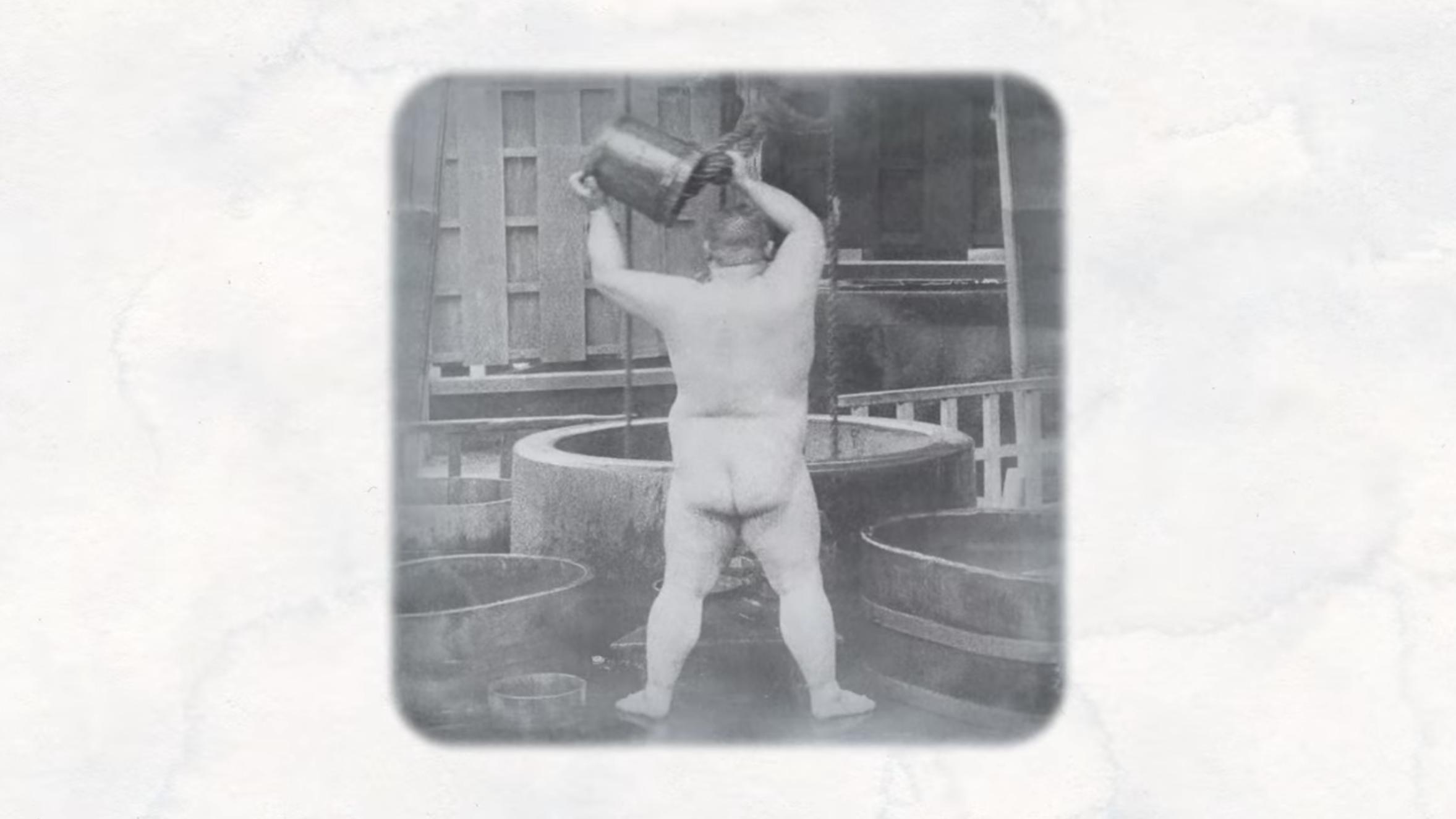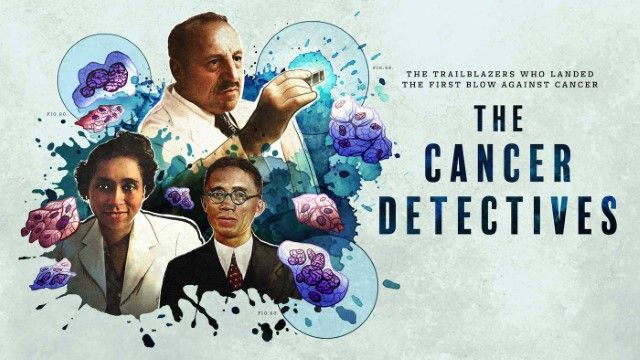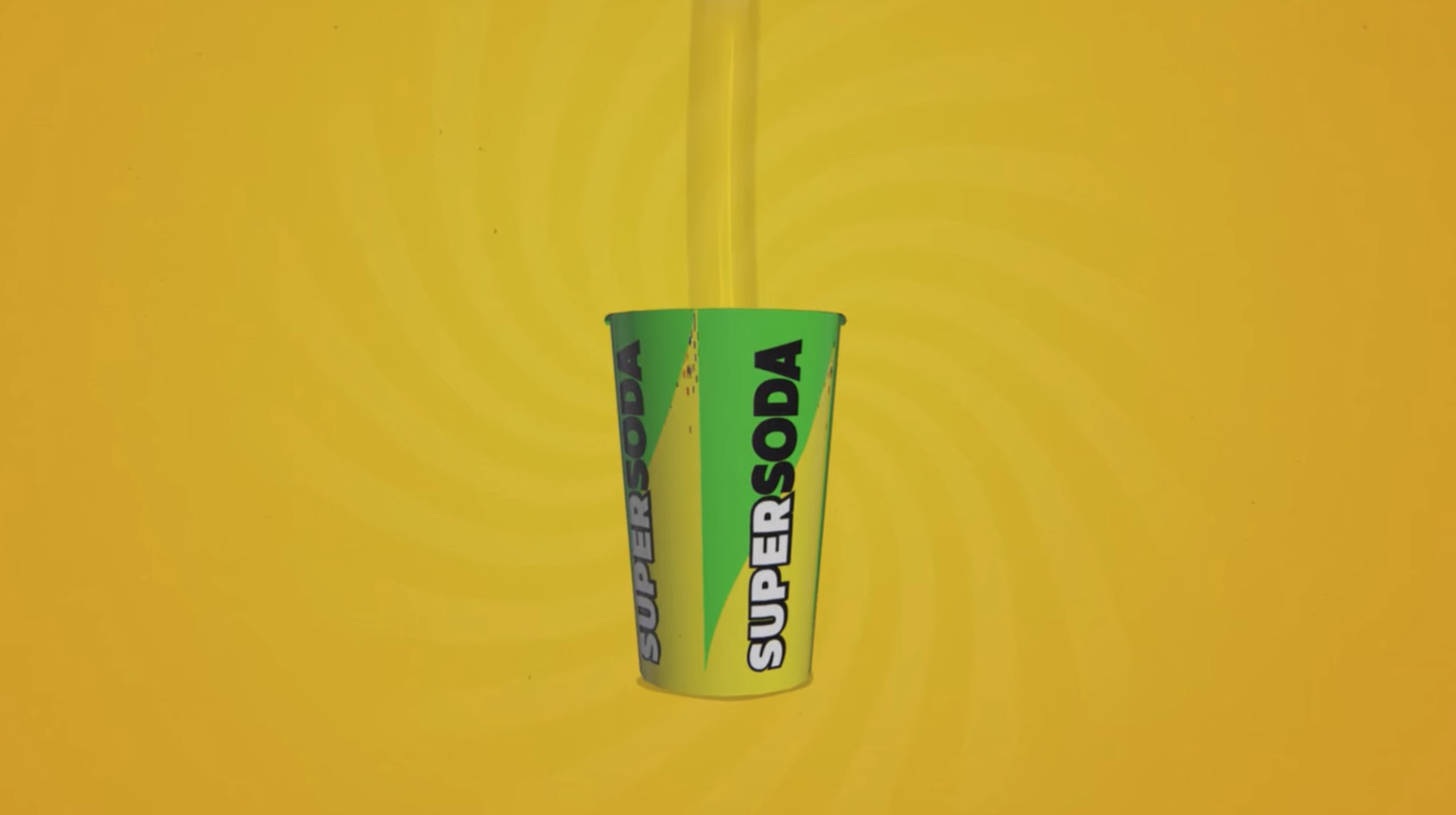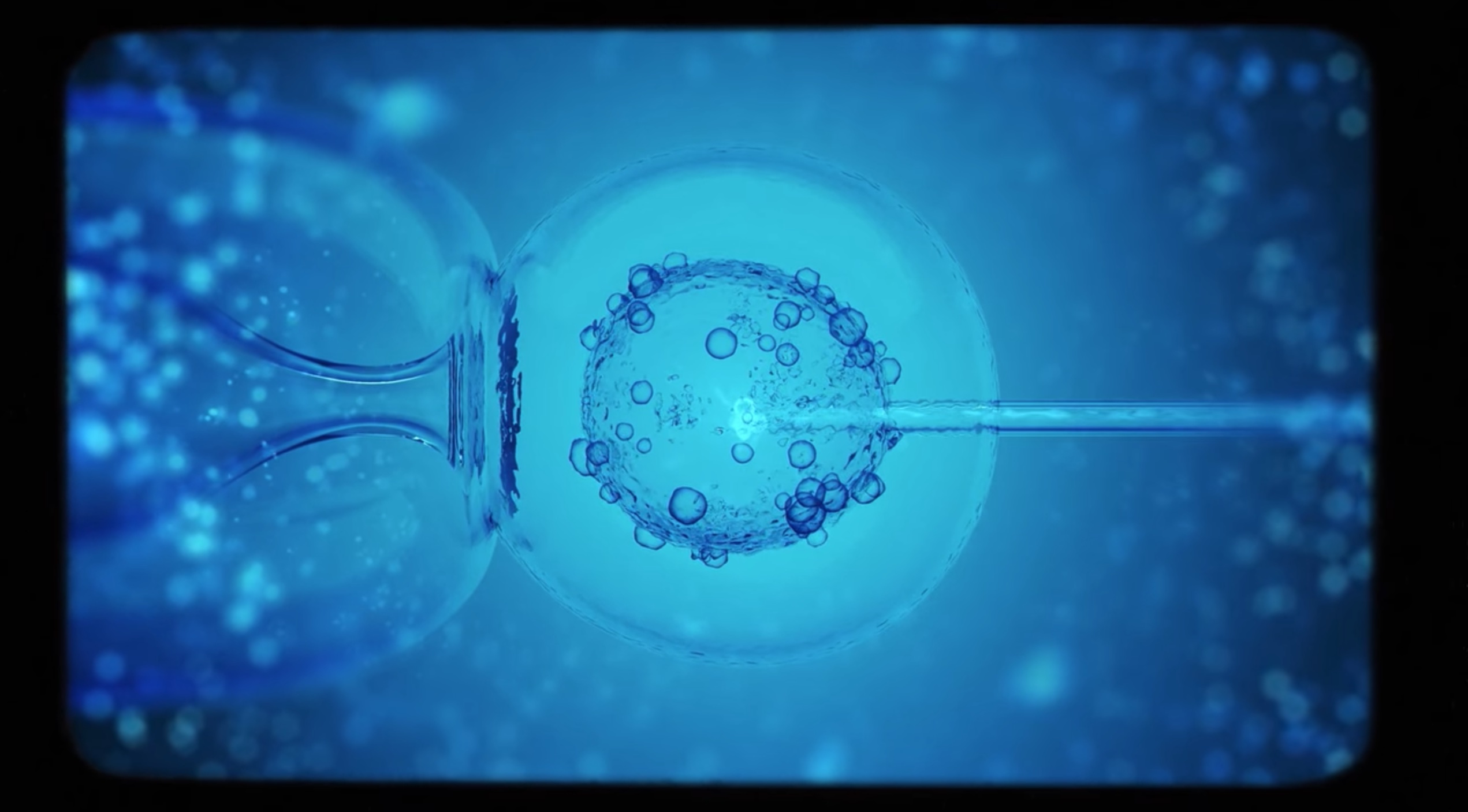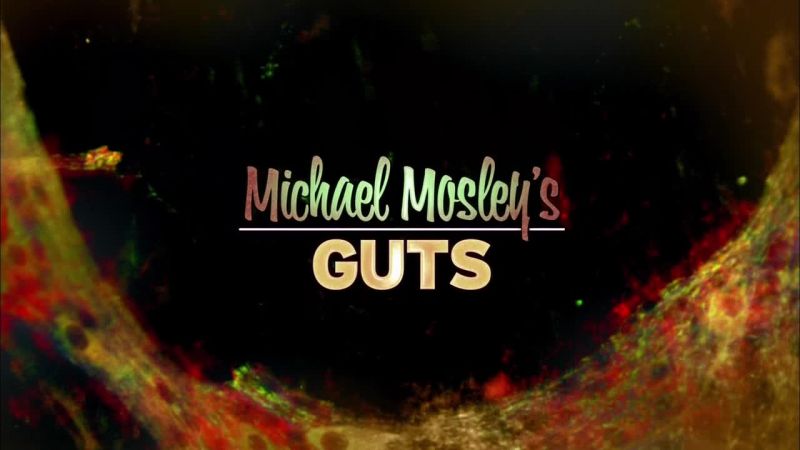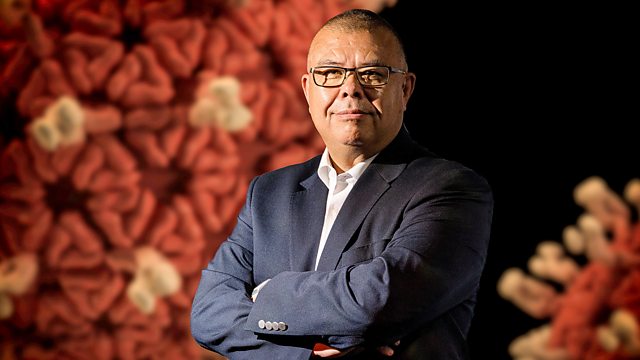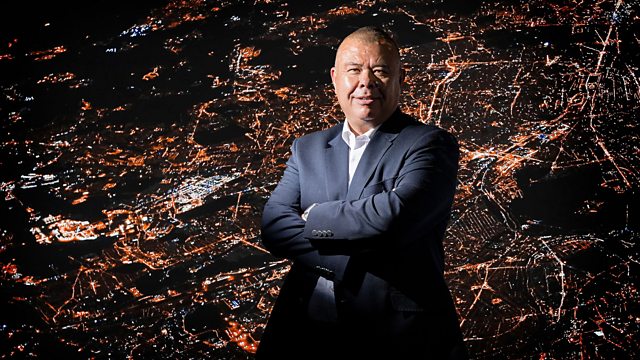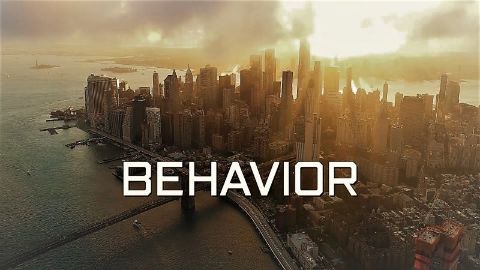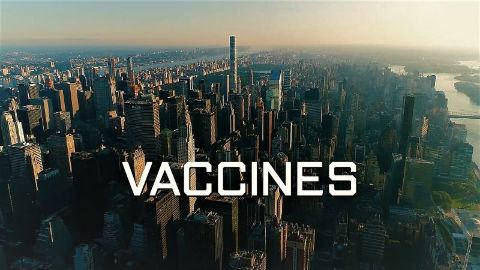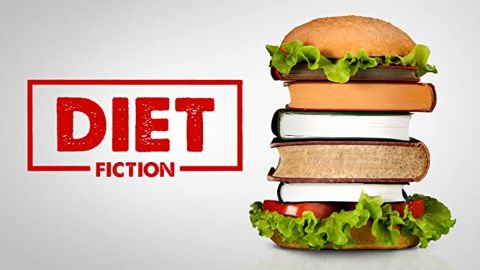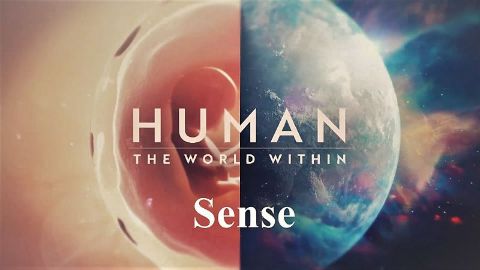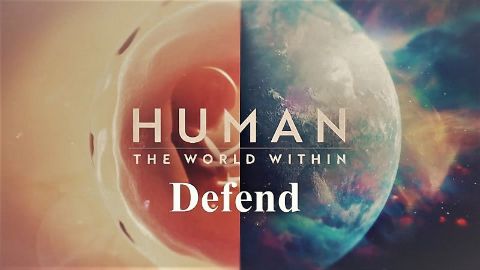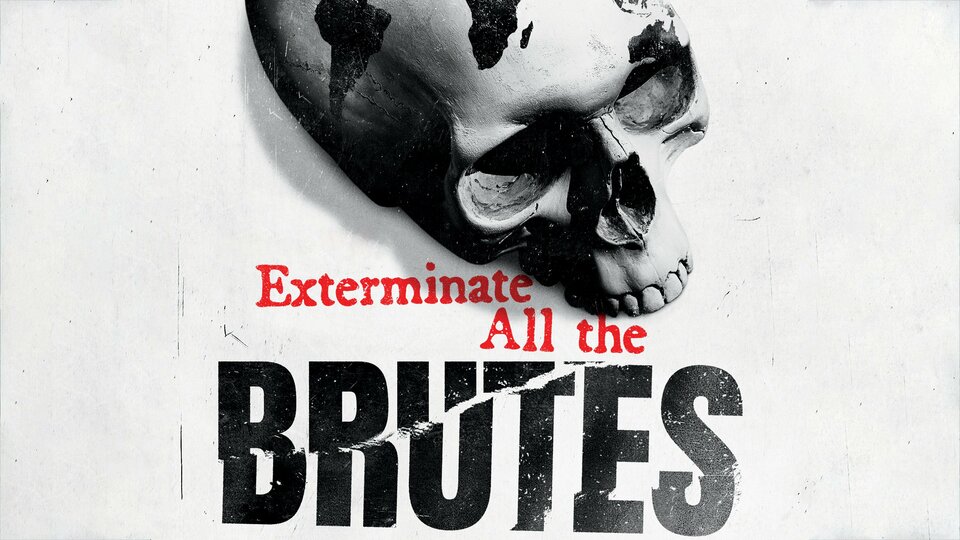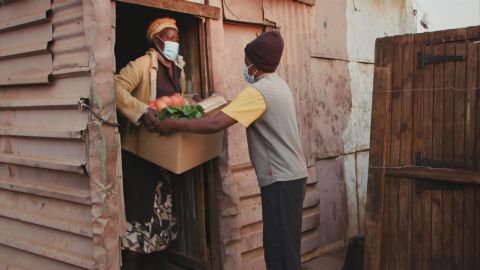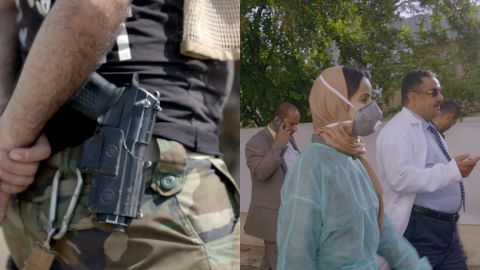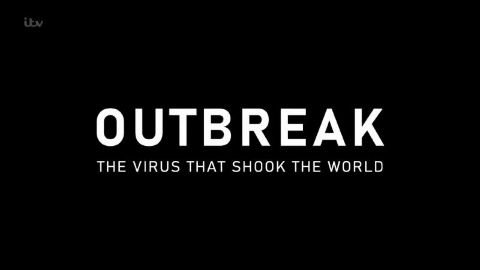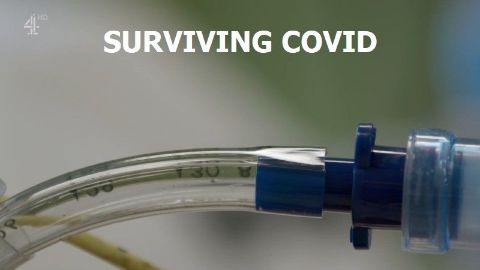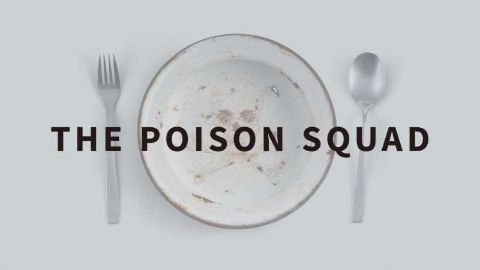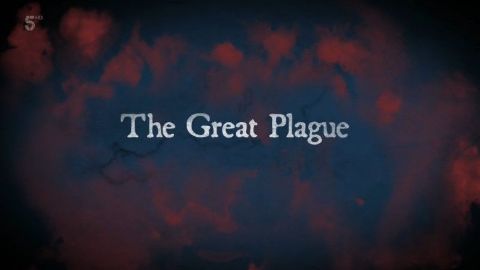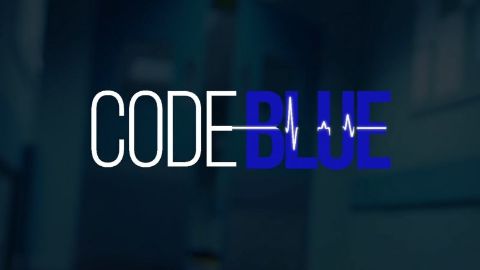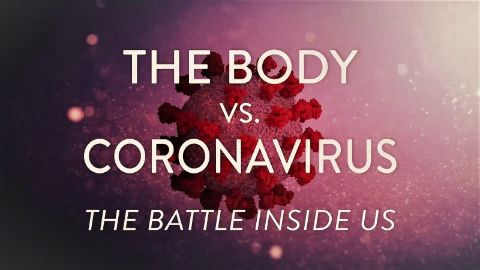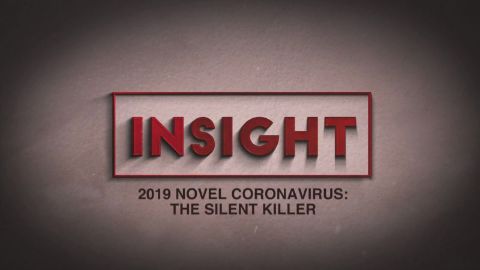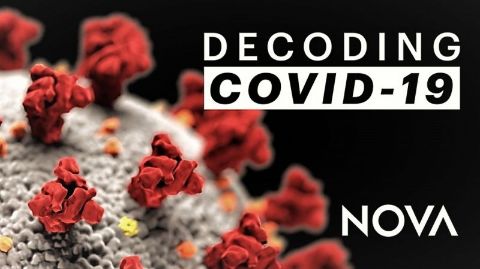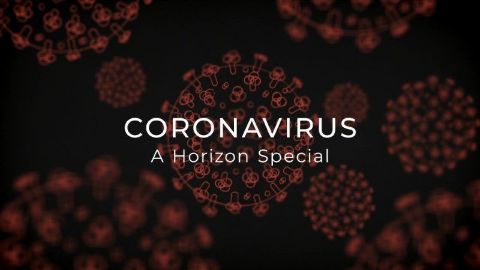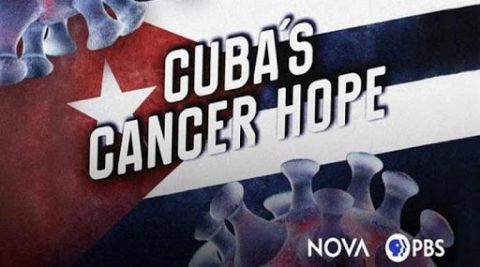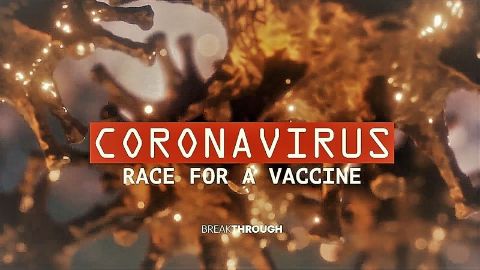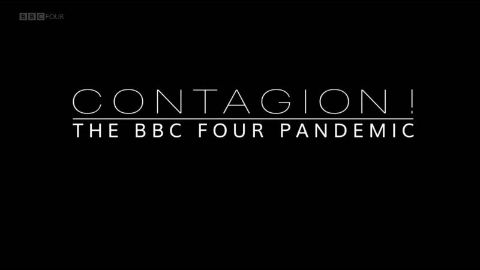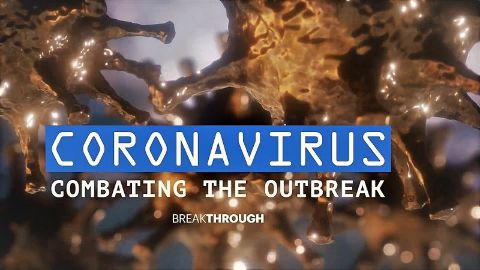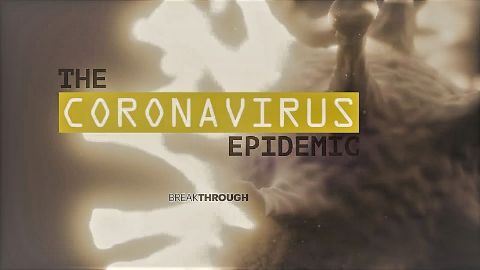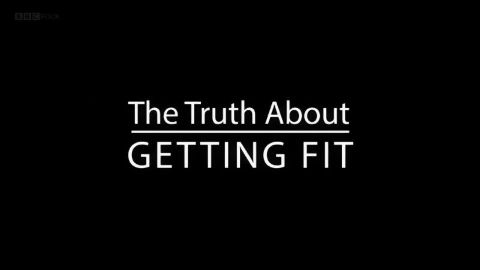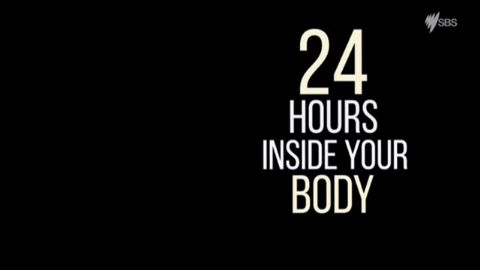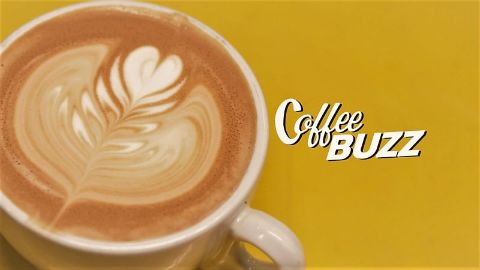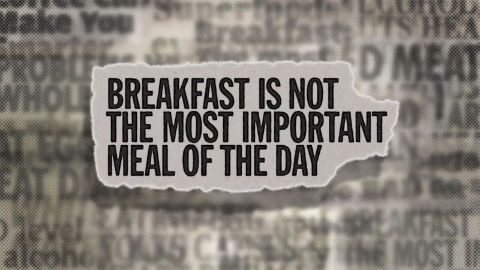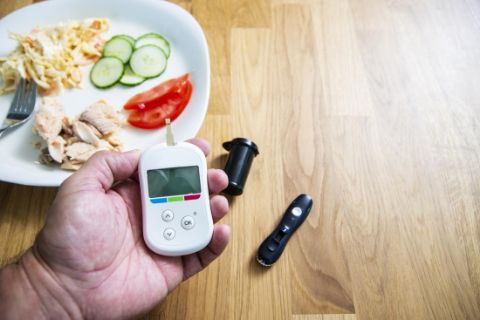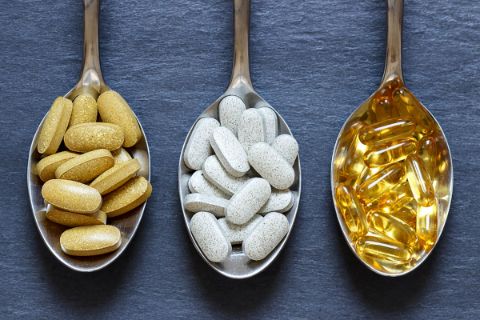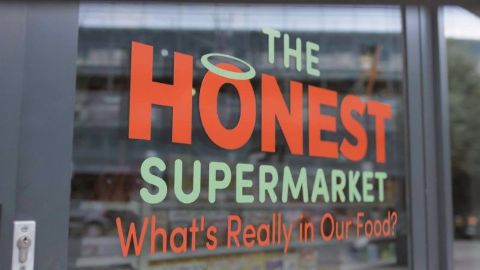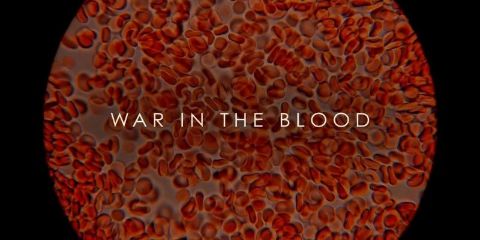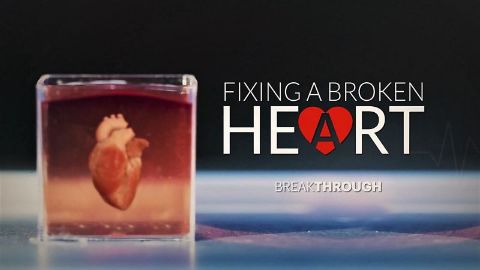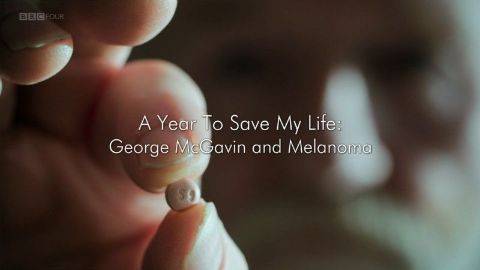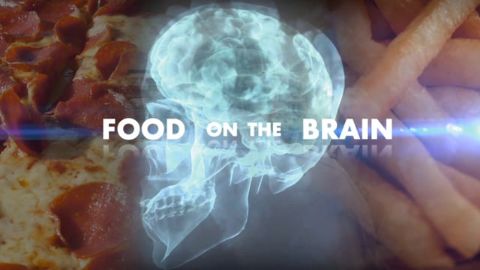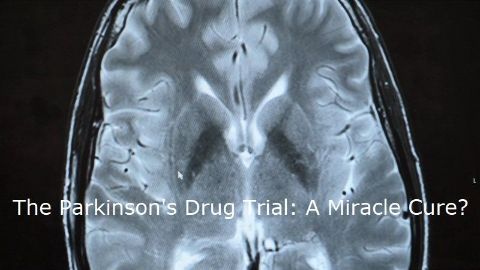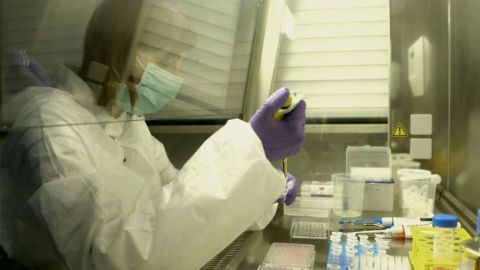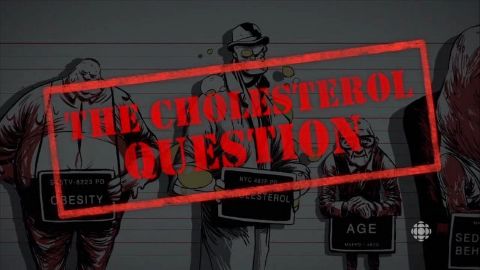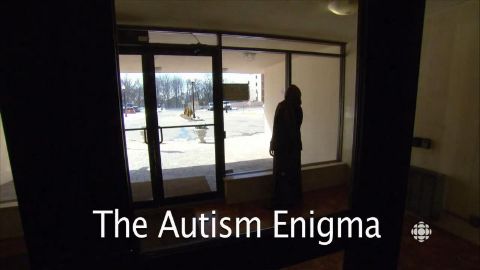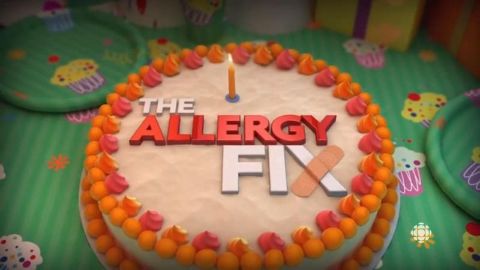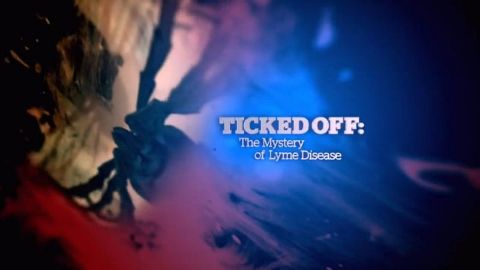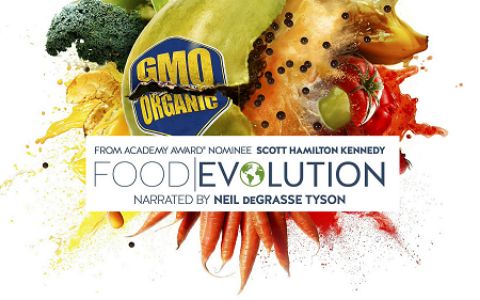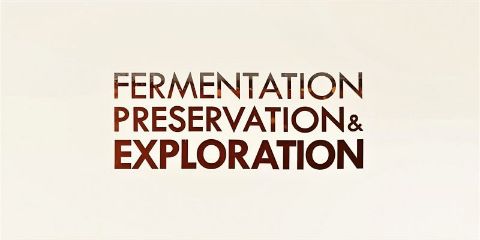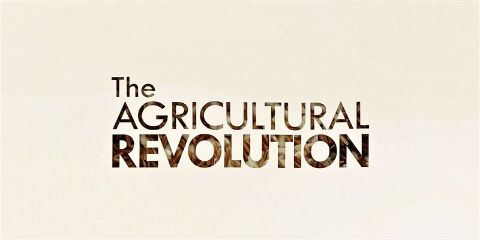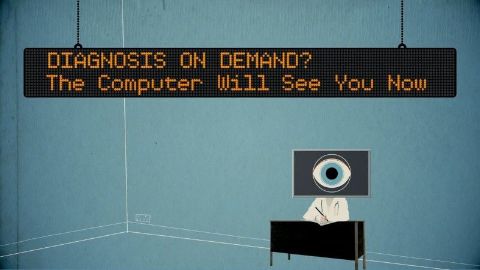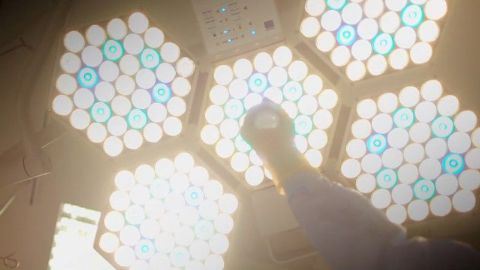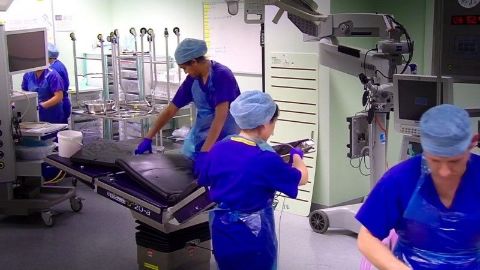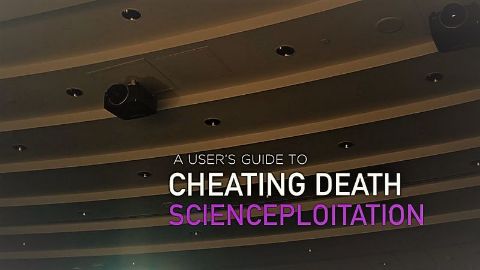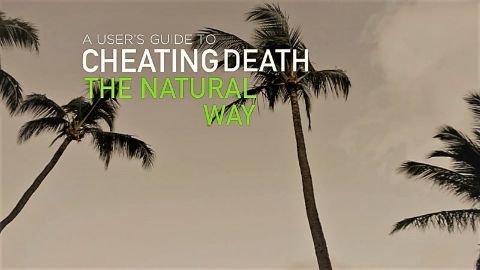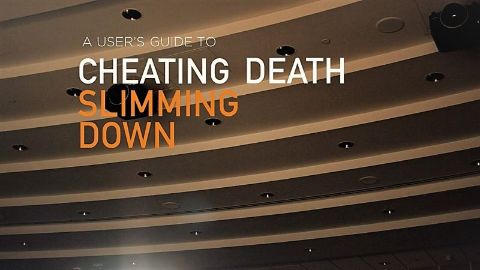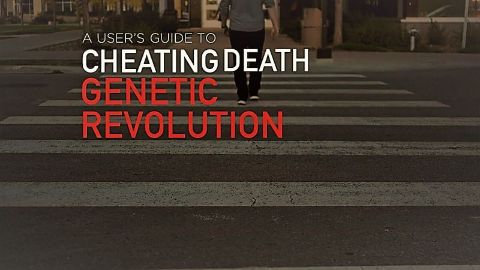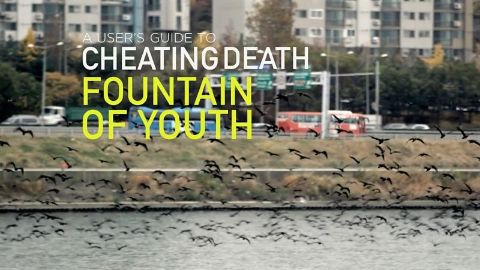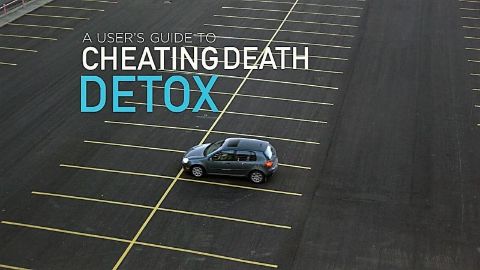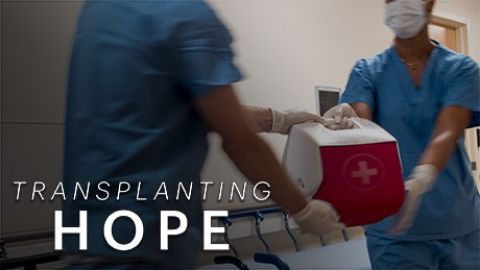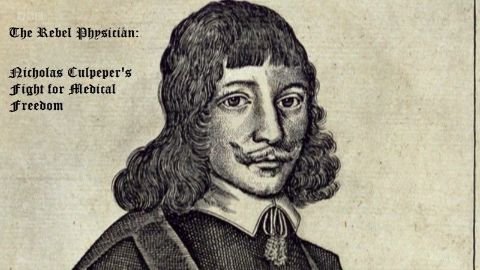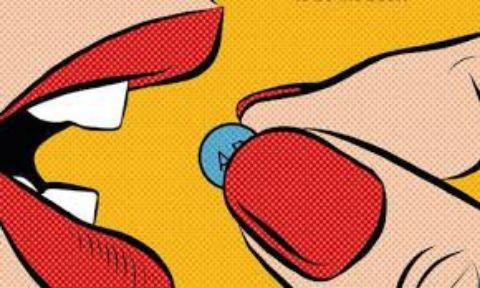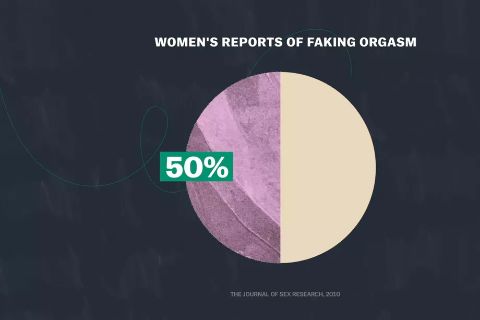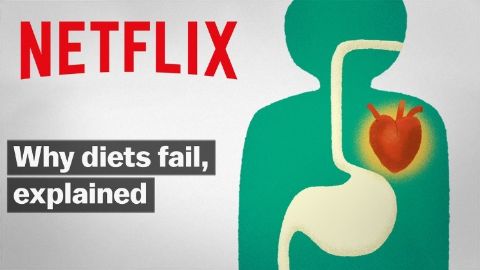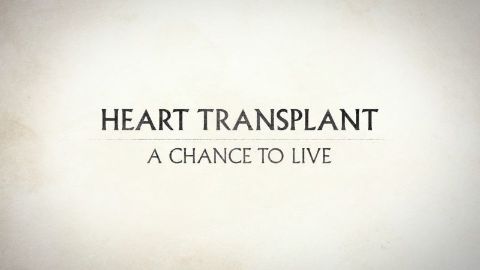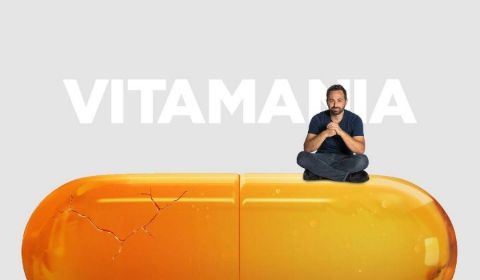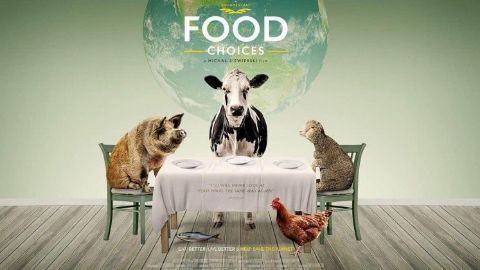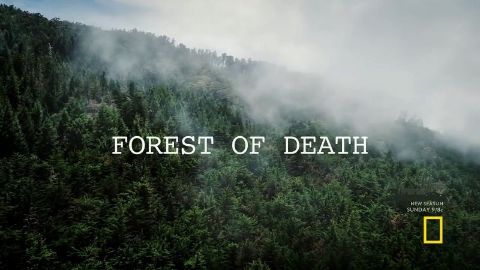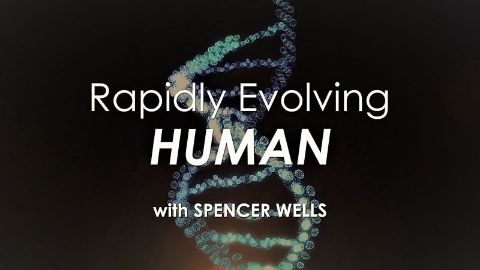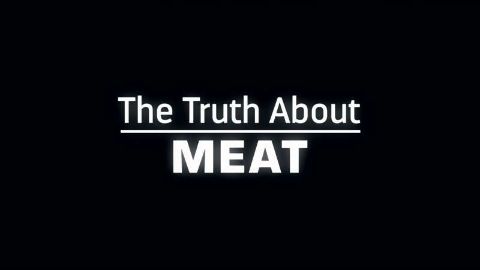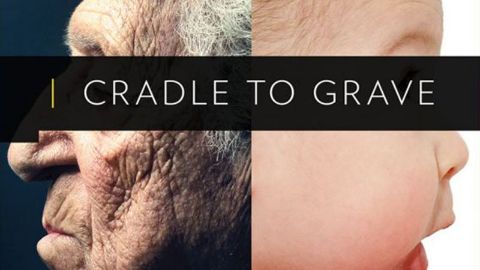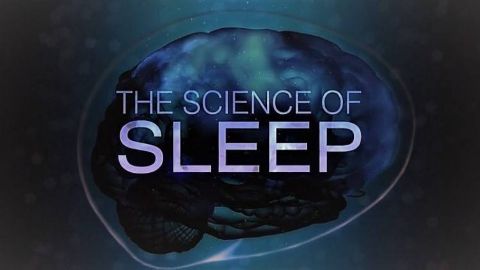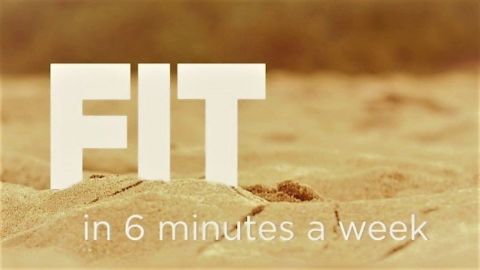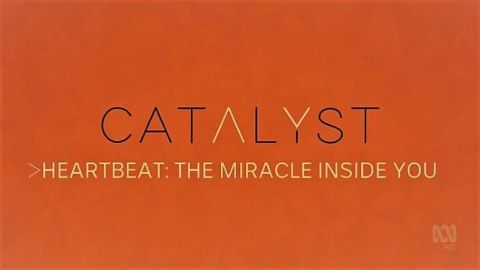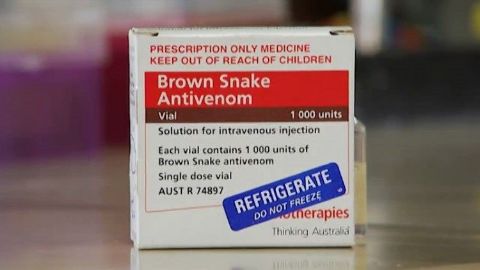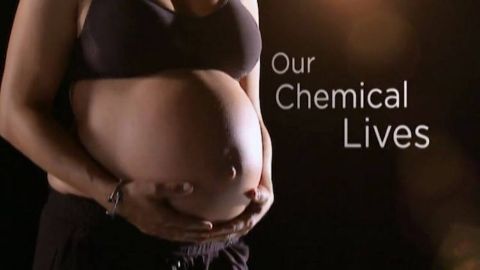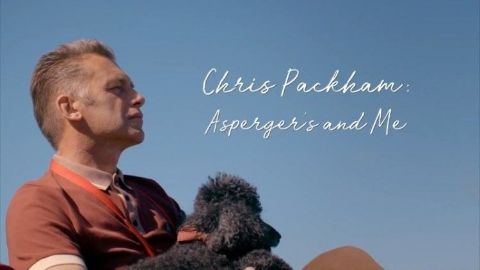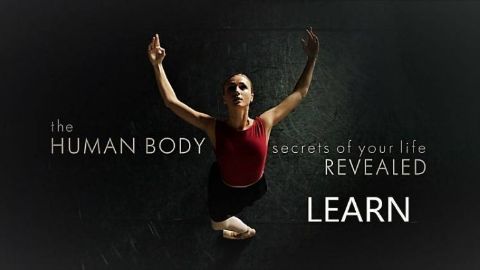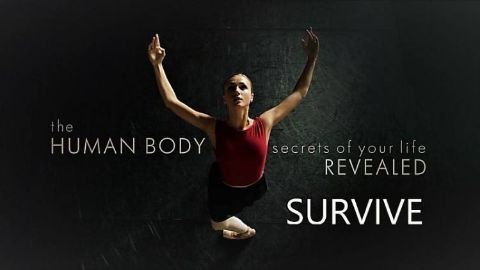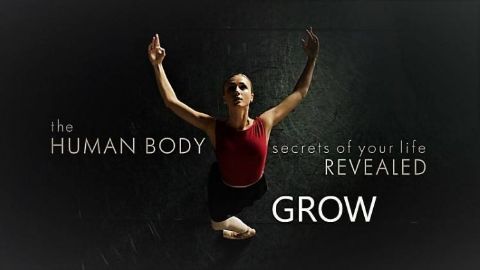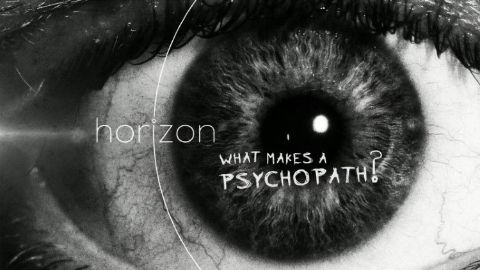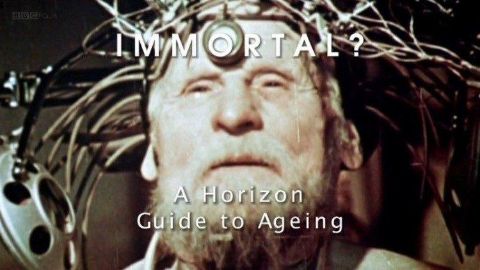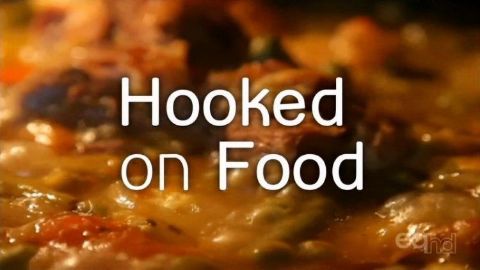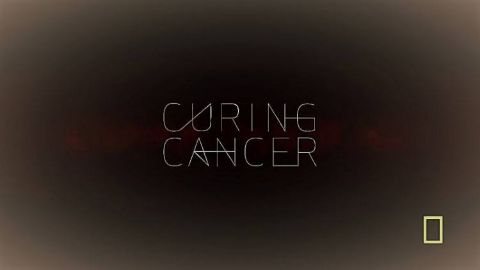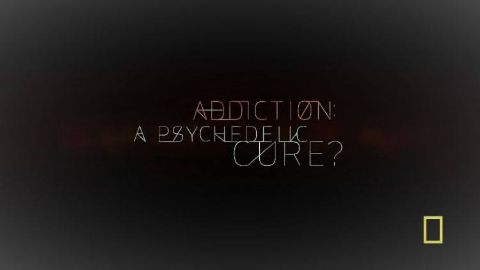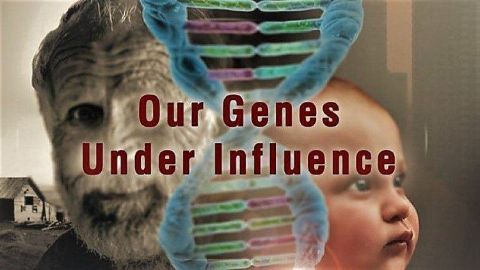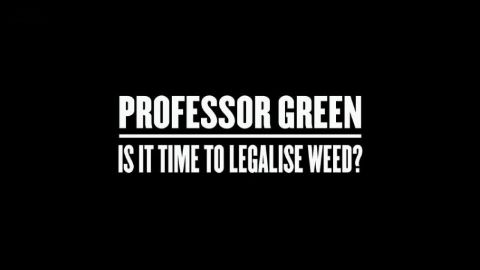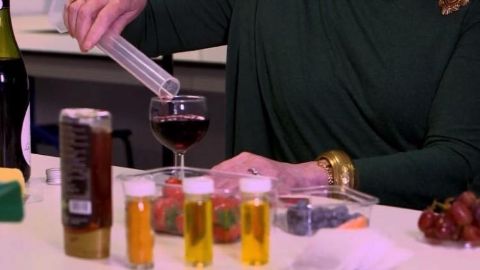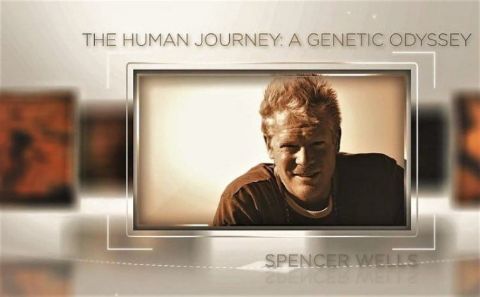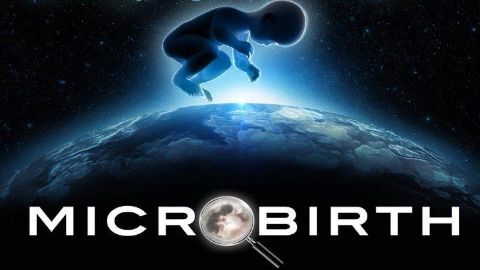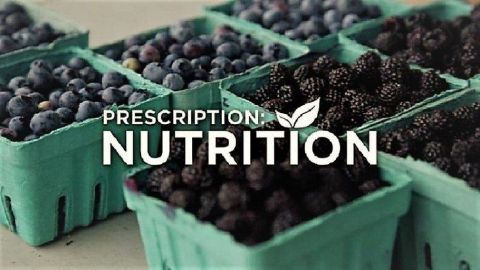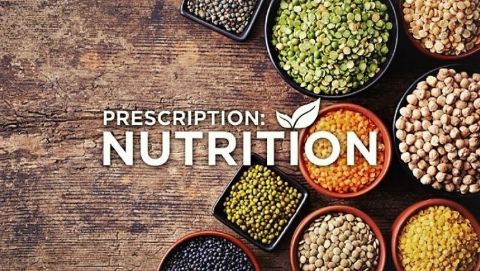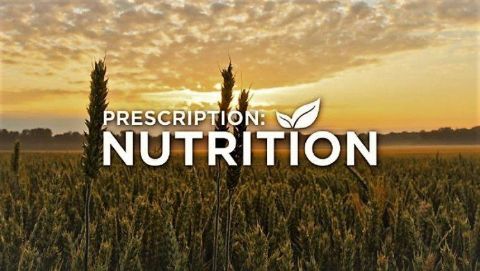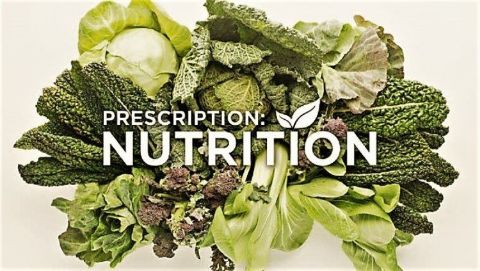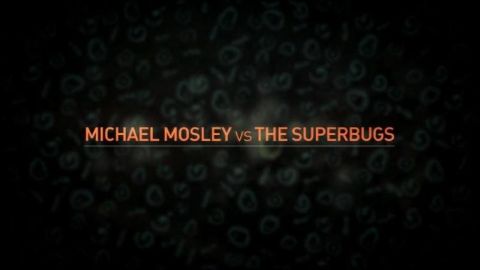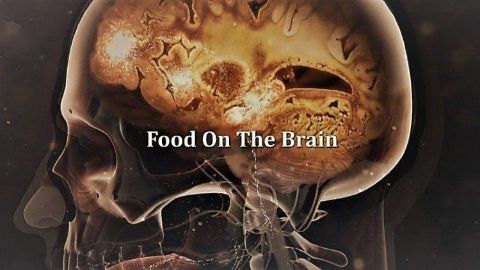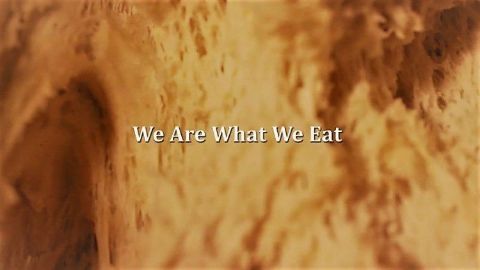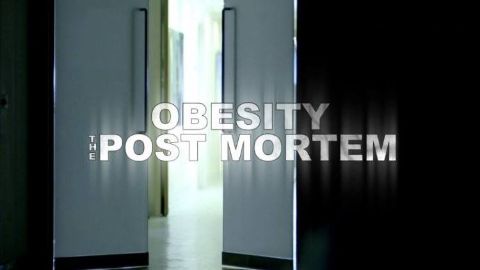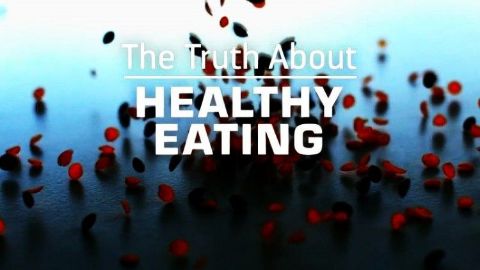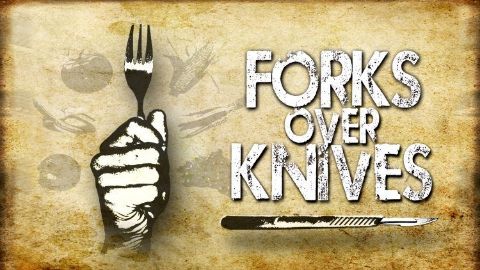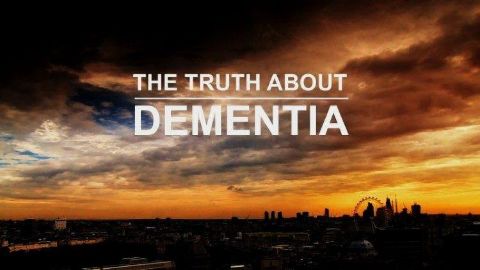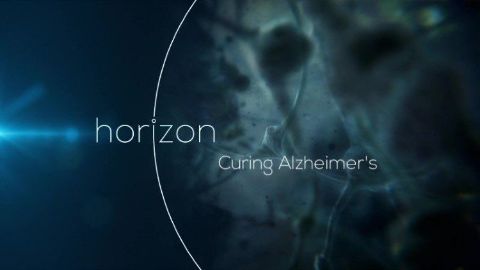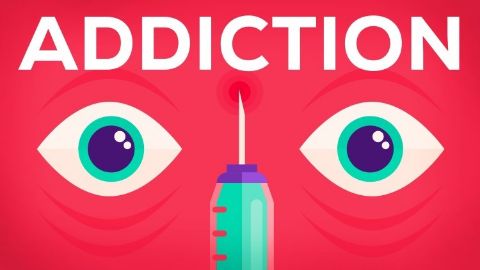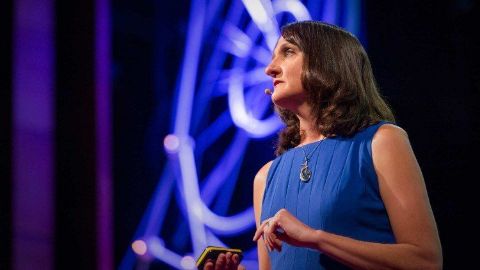HEALTH • 200 videos
Explore how heat waves affect the body, what levels of extreme heat we can survive, and what you can do to manage high temperatures.
On the front lines of the hunt for killer viruses, a shocking discovery is made: viruses, once thought to be a menace to humankind, may in fact be the ultimate creators. Since the beginning of time, they have played a critical role in evolution, shaping us and perhaps even creating us. How could that be? How can an entity seemingly programmed for destruction lead to genetic diversity and new species? To many people, viruses are simply agents for disease, but to Dr. Luis Villarreal, Director of the Center for Virus Research at the University of California Irvine, they may possess far greater power than originally thought. He guides us through evidence that viruses gave rise to the first complex cells, played a role in the diversification of life, changed how our young are born, drove evolution, and perhaps gave us emotions. One expert even suggests that an ancient virus could have entered our genes and rewired us for monogamy. National Geographic investigates a provocative new theory that suggests that all life - including humans - is descended from viruses. Taking us through African jungles in search for new strains, this episode of Explorer presents a startling new view of viruses - toward what may be a remarkable evolutionary moment: the rise of a new human species.
2008 • Health
In the summer of 1950 fear gripped the residents of Wytheville, Virginia. Movie theaters shut down, baseball games were cancelled and panicky parents kept their children indoors — anything to keep them safe from an invisible invader. Outsiders sped through town with their windows rolled up and bandanas covering their faces. The ones who couldn't escape the perpetrator were left paralyzed, and some died in the wake of the devastating and contagious virus. Polio had struck in Wytheville. The town was in the midst of a full-blown epidemic. That year alone, more than 33,000 Americans fell victim — half of them under the age of ten.
2009 • Health
Why are ultra-processed foods so irresistible, and how they have come to dominate food culture? Dr Chris van Tulleken features interviews with former food industry insiders who talk openly about the way in which popular foods have been designed to be irresistible. Food companies go to extraordinary lengths to ensure their products connect with consumers - from using brain scans to assess the deliciousness of ice cream to carefully engineering the sound of a crunch. Ultra-processed foods are hyper-delicious and super-convenient, have long shelf lives and are extremely cheap. But a growing body of evidence is linking these products to our declining health.
2024 • Health
BBC Scotland's political editor Glenn Campbell fell off his bike in June 2023. Alone on a country road with broken bones, he feared for his life and felt he'd had a lucky escape when help came his way. But six weeks after his accident, just as he was getting ready to go back to work, he had a seizure. He was diagnosed with incurable brain cancer, turning his world as he knew it upside down. In this film, Glenn shares his experience of living with a brain tumour and explores why treatments for the condition have barely changed in many years. Early in his cancer journey, Glenn realised there was nothing he could do to change his health outcomes, but the one thing he could do was tell his story. Glenn says, 'It's a golden rule as a journalist not to become the story, but in this case, I just felt that it was worth sharing my personal experience as a way of putting a bit of a spotlight on this most difficult of cancers.' Supported by family, friends and colleagues, Glenn has documented his story during what has been a very difficult year of gruelling treatment and endless uncertainty. Following surgery, which saw his malignant tumour removed successfully, he embarked on radiotherapy and chemotherapy. He also lives with the constant threat of seizures and has made the decision to share some very personal footage filmed while in the midst of one such episode. Brain cancer is the biggest cancer killer of people under 40. Every day, 33 people in the UK are diagnosed with a brain tumour. Motivated by his own shortened lifespan and the stories of friends made in the cancer community, Glenn has spent a huge amount of time and energy in the past year raising awareness of this often-misunderstood cancer. In this intimate film, we see the committed newsman in a different light as he faces down his mortality and considers what matters most in life. Sitting on the beach at Machir Bay on Islay – the island he hails from – he reflects: 'You realise what really matters, and maybe what doesn't quite so much. What really matters is family and friends and good times and making memories, and what maybe doesn't matter is the hubbub of everyday life, work and chores. I think being told you've got a life-limiting condition really puts that into perspective.'
2024 • Health
Michael Mosley takes a journey around the human body, putting his own to the test to help viewers understand their own. Chapter 1: Michael meets tremors-sufferer Thomas who is about to undergo pioneering brain surgery, and Allen, who finds out if his experimental cancer treatment has been a success. Chapter 2: Michael heads to Snowdonia, on a mission to demonstrate what stress does inside all our bodies, and in Durham, cameras reveal that we all possess an incredible hidden ability. Plus, a woman explains how she learned to see again by using echolocation. Chapter 3: Michael meets a community group in Glasgow, and reveals the best way to keep our brains young as we age. At Royal Papworth Hospital, cameras follow a life-saving procedure to treat Clifford, who has developed dangerous blood clots in his lungs. And a woman shares the secret of how she is long-distance running well into her seventies.
2024 • Health
Of all the diseases that plague humankind, malaria has put up one of the longest, toughest fights. More than 200 million people fall ill and 600,000 die of it every year, making it among the world's deadliest diseases. The vast majority of those fatalities are young children - an average of one child every minute. But medical science may now be at an exciting turning point. Filmed with intimate access to key scientists on four continents, this documentary tells the inside story of the development of a new malaria vaccine that could change the very nature of the fight. It's hoped that the vaccine, dubbed R21/Matrix-M and developed by many of the same team behind the Oxford/AstraZeneca Covid-19 vaccine, will be the first to meet the World Health Organization's target of 75 per cent efficacy.
2024 • Health
The Instagram face. A shapely posterior. Cosmetic surgery can make the latest beauty trends a reality. Explore its origins and effects, inside and out.
Delve into the digestive system with this lighthearted and informative documentary that demystifies the role gut health plays in our overall well-being.
2024 • Health
The story of how the life-saving cervical cancer test became an ordinary part of women's lives is as unusual and remarkable as the coalition of people who ultimately made it possible: a Greek immigrant, Dr. George Papanicolaou; his intrepid wife, Mary; Japanese-born artist Hashime Murayama; Dr. Helen Dickens, an African American OBGYN in Philadelphia; and an entirely new class of female scientists known as cyto-screeners. But the test was just the beginning. Once the test proved effective, the campaign to make pap smears available to millions of women required nothing short of a total national mobilization. The Cancer Detectives tells the untold story of the first-ever war on cancer and the people who fought tirelessly to save women from what was once the number one cancer killer of women.
2024 • Health
How and why what we eat is the cause of the chronic diseases that are killing us, and changing what we eat can save our lives one bite at a time.
2018 • Health
Sweet deal or bitter pill? High fructose corn syrup rose up to dominate supermarket shelves, but what is it doing to our health?
S2E10 • History 101 • 2022 • Health
A groundbreaking medical reproductive procedure has made parenthood possible for millions around the world - but at what cost?
S2E9 • History 101 • 2022 • Health
The home fitness revolution has exploded into a multibillion-dollar industry. Are home workouts a healthy habit - or just hype?
S2E8 • History 101 • 2022 • Health
Bacteria, viruses, but also fungus spores, algae, pollen, and even insects: microorganisms are constantly drifting through the sky. How can so many living beings find their way into the air and be circulating in our atmosphere? How do they survive? What is their influence on our lives and our entire living world? Biodiversity, health, climate - scientists are only now discovering just how much this discreet airborne "plankton" affects our lives and the entire ecosystem on Earth. But despite its many virtues, this magic matter is now under threat from human activity. With help from experts and using 3D visual effects, this scientific investigation will take us to the heart of a world that is still very little understood, and will reveal the diversity and fragility of the air we breathe.
2023 • Health
We are living in a time that has been described as the age of loneliness. Statistics reveal that over the last few decades, the number of admittedly lonely people has doubled. Many individuals report they have trouble making friends and finding others to confide in. Despite advances in technology, living conditions, education and healthcare, it's apparent that we are feeling more alone than ever before. While it's true that this isolation impacts us psychologically and emotionally, what many of us don't realize is the negative impact it has on every aspect of our health and well-being. So what's caused this? How have we become so Disconnected? Wellness expert Tamer Soliman attempts to answer these questions by visiting cities across North America. Through interviews with local citizens, community activists, and leading authorities on social, economic and urban design, Tamer discovers the reasons behind this loneliness epidemic and the true cost it has on our lives. This fascinating documentary invites us to reflect on our relationships with those around us and raises the question: Is it possible to overcome our modern day culture of disconnectedness and rediscover how essential we are to each other?
2020 • Health
Buettner visits Singapore and shares his discoveries in the United States to find out creating a new Blue Zones in a rapidly changing world.
S1E4 • Live to 100: Secrets of the Blue Zones • 2023 • Health
Both the Greek island of Ikaria and a peninsula in Costa Rica boast some of the world's healthiest and most active folks over 100 years old. Discover how they do it with simple foods and exercise that are fully integrated into daily life.
S1E3 • Live to 100: Secrets of the Blue Zones • 2023 • Health
On the island of Sardinia, the people live in harmony with the land and with one another. Learn about this effortless lifestyle where work and play seem to be united and the result is longevity. Can the same be true in an American suburb?
S1E2 • Live to 100: Secrets of the Blue Zones • 2023 • Health
How can people live so long and with such great health? A trip to Okinawa reveals simple secrets about diet, lifestyle and longevity. They maintain a sense of purpose no matter what age and you won't find them laying on the sofa.
S1E1 • Live to 100: Secrets of the Blue Zones • 2023 • Health
What's really going on inside your stomach? In this documentary, Michael Mosley offers up his own guts to find out. Spending the day as an exhibit at the Science Museum in London, he swallows a tiny camera and uses the latest in imaging technology to get a unique view of his innards digesting his food. He discovers pools of concentrated acid and metres of writhing tubing which is home to its own ecosystem. Michael lays bare the mysteries of the digestive system - and reveals a complexity and intelligence in the human gut that science is only just beginning to uncover. The BBC name is "Guts: The Strange and Mysterious World of the Human Stomach".
2012 • Health
There are more bicycles than people in the Netherlands. The Dutch don’t seem to care about what is special about their bike culture. The film invites regular cyclists and scientists from all walks of live to talk about Dutch cycling culture. When talking to people in the Netherlands they come up with many different aspects as to why cycling is as important as it is. The film shows many different angles why cycling has remained so popular in the Netherlands. In the end it leads to a general conclusion. Talking about why we cycle means we are dealing with a bigger questions; What kind of society we want to be?
2017 • Health
When Hannah Fry is diagnosed with cervical cancer at the age of 36, she starts to interrogate the way we diagnose and treat cancer by digging into the statistics to ask whether we are making the right choices in how we treat this disease. Are we sometimes too quick to screen and treat cancer? Do doctors always speak to us honestly about the subject? It may seem like a dangerous question to ask, but are we at risk of overmedicalising cancer? At the same time, Hannah records her own cancer journey in raw and emotional personal footage, where the realities of life after a cancer diagnosis are laid bare.
2022 • Health
Julia Bradbury talks about her battle with the disease, filmed from the very early days of her diagnosis as she comes to terms with the news, and prepares for a mastectomy. The documentary features Julia's immediate family including her three children, her parents - both of whom are cancer survivors - and her older sister Gina, who are all impacted by Julia's diagnosis and intrinsic to her efforts to recover.
2022 • Health
England's Deputy Chief Medical Officer and epidemiologist Jonathan Van-Tam takes a deep dive into viruses and reveals why discoveries and advances made during the on-going Covid-19 pandemic mean biological science will never be the same again.
S1E3 • Royal Institution Christmas Lectures - Going Viral • 2021 • Health
England's Deputy Chief Medical Officer Jonathan Van-Tam is joined by a host of top UK scientists to take a deep dive into the science of viruses. Plus, how new research could have an impact far beyond Covid-19.
S1E2 • Royal Institution Christmas Lectures - Going Viral • 2021 • Health
Professor Jonathan Van-Tam takes a deep dive into the fascinating and varied world of viruses. He aims to show how public health measures, combined with ground-breaking science, will have an impact far beyond Covid-19, including breakthroughs that could help fight other infectious diseases, genetic disorders and even cancer.
S1E1 • Royal Institution Christmas Lectures - Going Viral • 2021 • Health
November 22, 1963. The entire world is in shock. President Kennedy has just been assassinated during a trip to Dallas. Even Khrushchev himself seems touched by the tragic news. In a surprising coincidence, South Vietnamese president Diem was assassinated twenty days earlier, in a coup organized by his generals... The players are changing, but the Vietnam war drags on. America's new President Johnson sinks his country further into the quagmire of war. Close to three million young Americans discover Hell - the jungle, the unbearable heat, and the Viet Cong, with its tunnels and traps. For the first time, television plays a special role in the war. In 1968, the images of the terrible "Tet Offensive" revealed to the population the fiasco which took place in Vietnam: the massacres, the abuses of American soldiers and the obvious rout of their army. Soon the United States has no choice but to recall its troops; a victory for the communist world... But the USSR emerges from it ruined. Weakened by its various campaigns around the world, it will not experience the same success in Afghanistan. Soon, the "satellite" republics will resume their rights, overthrowing in turn the regimes imposed by Moscow. In 1989, the Berlin Wall fell and the Soviet Empire collapses... The red flag with the gold star dismounted from the roofs of the Kremlin. This is the end of the cold war. The war of the worlds ends.
S1E6 • Apocalypse: War of Worlds 1945-1991 • 2019 • Health
The inside story of the high-stakes race to defeat a killer virus and save millions of lives.
S61E1 • The Nature of Things • 2021 • Health
The planet's current rate of meat consumption is unprecedented -- and becoming unsustainable. In the future, will meat alternatives be the answer?
(This episode is from before the outbreak of Covid-19 pandemic) - In this episode from 2019, experts including Bill Gates discuss the history of pandemics, how they spread and what could be done to contain them.
The extraordinary inside story of the biggest scientific challenge of our age – following a small band of vaccine scientists around the world who took on Covid-19 and ultimately delivered the weapon to beat it. As news of the coronavirus broke around the globe, a small group of scientists jumped into action to tackle one of the greatest medical challenges of our time: to create a vaccine against a virus no-one had ever seen before and to do so in record time, all during a deadly, global pandemic.
Understand the importance of persuading the public to protect themselves during health crises. History shows that handwashing, social distancing and grassroots campaigning all play important roles in helping to shift behavior and save lives.
S1E4 • Extra Life: A Short History of Living Longer • 2021 • Health
Track the importance of data mapping and analysis in the quest to improve public health. The painstaking work of past data detectives made us aware of epidemic "curves" as well as the extent of health inequalities among different U.S. communities.
S1E3 • Extra Life: A Short History of Living Longer • 2021 • Health
Learn about the surprisingly recent invention of medicine that combats illness directly, such as antibiotics. From the accidental discovery of penicillin to today's hunt for antivirals, this history underpins work to find COVID-19 treatments.
S1E2 • Extra Life: A Short History of Living Longer • 2021 • Health
Discover the role vaccination plays in our growing ability to prevent the spread of illness. Travel through the remarkable history of vaccines and learn how new ones are developed when never-before-seen diseases emerge.
S1E1 • Extra Life: A Short History of Living Longer • 2021 • Health
The film exposes the most popular diets on the planet as well as several misconceptions about weight loss and nutrition. The film follows the audacious filmmaker Michal Siewierski (Food Choices) in his treacherous journey.
2019 • Health
Through the lens of a boxer, a first responder, a cell tower climber and a man with a bionic limb, go deep into the universe of the most powerful machine on earth: the human brain and the vast nervous system it controls.
S1E6 • Human: The World Within • 2021 • Health
Dive into the stories of a pairs figure skating team, a perfumer, a cave explorer and a musician to decipher how different ways of sensing the world all create their own vivid and unique picture.
S1E5 • Human: The World Within • 2021 • Health
Look at a nature survivalist, rancher twins, a doctor who survived Ebola and the recipient of a cutting-edge cancer therapy to uncover the wildly advanced biology that keeps us alive against all odds.
S1E4 • Human: The World Within • 2021 • Health
Through the worlds of a religious faster, an ultra-marathon runner, a farmer and a young girl beating allergies, go deep into the world of the human gut, which processes the fuel our bodies need to keep going.
S1E3 • Human: The World Within • 2021 • Health
Dive into the world of an ice climber, a bus driver, a woman in labor and a senior dance club to show how the human heart and the circulatory system power our physical and emotional lives and create the pulsing rhythm of our world.
S1E2 • Human: The World Within • 2021 • Health
Go on a journey with parents who are preparing for babies to see how our bodies create and sustain new life. Through their stories, we learn about what is fundamentally shared and absolutely unique about the experience of birth.
S1E1 • Human: The World Within • 2021 • Health
Explores the history behind white supremacy, including accounts of conquest, genocide and slavery from around the world. (4 parts merged into one)
2021 • Health
Frontline documented how people and countries responded to COVID-19 across cultures, races, faiths and privilege.
2 • The Virus That Shocked the World PBS FRONTLINE • 2021 • Health
The epic story of how people around the world lived through the first year of the coronavirus pandemic
1 • The Virus That Shocked the World PBS FRONTLINE • 2021 • Health
In this third Horizon special, Dr Chris Van Tulleken is joined by his brother Xand and Dr Guddi Singh to take us through the latest developments and answer current concerns. Though the effect of the coronavirus pandemic has been devastating to many, the team reveal the breakthroughs in genetics, medicine and modelling that have provided a way out of this situation and given hope and confidence that, in the event of a future pandemic, we can take it on and win.
Nearly 40 million people are living with HIV. After decades of research and activism, how far have we come in finding a cure and battling the stigma?
S1E9 • History 101 • 2020 • Health
Cheap, quick and tasty, fast food became a culinary craze in the 1950s. But has our quest for convenience created an irreversible health crisis?
S1E1 • History 101 • 2020 • Health
Dr Ronx investigates why more men die from Covid-19 than women, a situation that has parallels with many other diseases, including SARS, cancer and HIV. The programme also looks into a dangerous gender data gap that risks undermining how women are treated within the healthcare system, leading to misdiagnoses and deaths.
2021 • Health
Explores the spread of Covid-19 across four continents during 2020. Featuring contributions from medical professionals, a look at the initial outbreak in China and suggestions that the authorities attempted to cover up the danger, and an examination of how the decisions taken by governments and public health officials helped shape the course of the infection.
2021 • Health
Amidst radical changes in nicotine use globally, one filmmaker's journey through the confusion & fear leads to a startling discovery about Earth's most hated stimulant. Society may be changed forever.
2020 • Health
An intimate, feature-length documentary following the stories of four patients at London's King's College Hospital who have been struck down by Covid-19. The film follows the patients and their families over a six-month period, offering a stark reminder of how frightening and destructive the Covid-19 virus can be.
2020 • Health
COVID-19 is far from the first pandemic to wreak havoc in the world. A long line of infectious diseases have devastated and in some cases destroyed entire societies. Almost all of them started in animals and made the jump to humans. We are terrified of pandemics. And with good reason. Infectious diseases have cost the lives of countless people over the centuries, devastating families, towns, and even societies. The Black Death spread across Europe and Asia in the 14th century leaving millions dead in its wake. Between the 15th and 18th centuries, European colonists brought smallpox to the Americas, the Pacific region and to Australia. In Europe, the 17th century saw a series of major epidemics. And at the end of the First World War, more people died of the Spanish flu than on the battlefield. This documentary examines the causes of these epidemics - whether it be lack of hygiene, interaction with animals, overcrowding, or the growth of cities - and how people travelling helped to spread disease and promote pandemics. It also sheds a light on the impact these infectious diseases have had on politics and societal change. Today, the world is facing COVID-19. Measures such as quarantine and lockdowns are being rolled out in an effort to control the spread of the virus; and, just as our ancestors did before us, some are questioning how effective they are. Over the centuries, scientists managed to develop treatments and medicines to help control or even eradicate infectious diseases. Virologists are facing that task again with the coronavirus, as the world frantically searches for ways to overcome a pandemic which threatens our modern way of life.
2020 • Health
By the close of the Industrial Revolution, the American food supply was tainted with frauds, fakes and legions of new and untested chemicals, dangerously threatening the health of consumers. Based on the book by Deborah Blum, The Poison Squad tells the story of government chemist Dr. Harvey Wiley who, determined to banish these dangerous substances from dinner tables, took on the powerful food manufacturers and their allies. Wiley embarked upon a series of bold and controversial trials on 12 human subjects who would become known as the “Poison Squad.” Following Wiley’s unusual experiments and tireless advocacy, the film charts the path of the forgotten man who laid the groundwork for U.S. consumer protection laws, and ultimately the creation of the FDA.
American Experience • 2020 • Health
Xand van Tulleken, Raksha Dave and John Sergeant discover the parallels of the Great Plague of 1665 with the Covid-19 pandemic. Ch1. Outbreak The epidemic is traced back to its source in the parish of St Giles in the Fields, now at the heart of London's theatre district. The program also examines the symptoms of the disease and uncovers new research into the plague bacteria that could overthrow accepted ideas about how the infection was spread. Ch2. Decimation Xand heads to St Barts hospital to look back at historical records which show that nursing staff stayed behind and risked their lives to help the sick. Elsewhere, John investigates why infection rates were so different between the rich and poor, examining clothes typical for each group in the 17th century. Ch3. Aftermath Xand visits Samuel Pepys' parish church and discovers the sad tale of the Poole family, who within 11 days lost all five of their children. He also heads to Eyam in Derbyshire, revealing the heroic story of self-sacrifice that saw all 700 villagers lock themselves in to try to stop the disease from spreading to surrounding areas. Raksha Dave trials 17th-century disinfection methods and reveal a surprising substitute that can be just as effective as modern antibacterial cleaners.
2020 • Health
How can we cope with this tricky virus now rampant worldwide? The key to this battle lies in our immune system. Through the high-tech “eyes” of next-generation microscopes, we will see how our immune defense corps combat against pathogens and what mechanism is expected to help develop treatment.
2020 • Health
It came without a warning and spread like wildfire, but the origins of the Novel Coronavirus remain a mystery. A look at the origins and impacts of the Novel Coronavirus is featured.
2020 • Health
The coronavirus SARS-CoV-2 has upended life as we know it in a matter of months. But at the same time, an unprecedented global effort to understand and contain the virus—and find a treatment for the disease it causes—is underway. Join doctors on the front lines of the fight against COVID-19 as they strategize to stop the spread, and meet the researchers racing to develop treatments and vaccines.
Dr Chris van Tulleken, Dr Hannah Fry and Michael Mosley examine the latest research and explore some of the big questions about Covid-19 and the pandemic it has created. Michael visits the UK government's high-security laboratory Porton Down, where vaccines are being tested. He also uncovers what the experience of the 2002 SARs epidemic reveals about this one. Both were caused by coronaviruses, but certain key changes to today's virus have allowed it to infect the world, where SARs was contained.
Maitre d' and Extraordinary Places to Eat host Fred Sirieix and GP Zoe Williams open a restaurant with a difference, welcoming 20 unsuspecting diners for a slap-up meal. It all sounds normal enough, but this restaurant has something unexpected back of house - a functioning gym, where a group of fitness fanatics are poised on exercise bikes, treadmills and rowing machines, ready to burn off every single calorie ordered and consumed by the diners.
In just over 100 days, a new coronavirus has taken an unprepared world by storm, infiltrating every corner of the globe, sending entire nations into lockdown, killing thousands and infecting countless more. Across the world, governments are scrambling to react, hospitals are struggling to cope and an increasingly anxious public are starting to panic. The world's media is awash with data, information and misinformation. But what are the facts? What is COVID-19 and why is this strain of coronavirus so dangerous? What happens in our bodies when the virus attacks? How does this compare to previous pandemics? What do all the the numbers really mean, and how can data modelling help us look for an exit strategy? This programme investigates the scientific facts and figures behind the biggest public health crisis in living memory, and explores the latest research from the frontline of the medical and scientific fightback.
When the U.S. trade embargo left Cuba isolated from medical resources, Cuban scientists were forced to get creative. Now they've developed lung cancer vaccines that show so much promise, some Americans are defying the embargo and traveling to Cuba for treatment. In an unprecedented move, Cuban researchers are working with U.S. partners to make the medicines more widely available.
According to current estimates, a widely available COVID-19 vaccine will likely be available within the next 12 months. Why so long? Learn how vaccines are developed and explore the current state of the coronavirus landscape, guided by the scientists on the ground trying to find a solution.
Breakthrough • 2020 • Health
The government rates the global outbreak of a deadly flu virus as a major threat to the UK. It could happen at any time. To predict the impact of the next pandemic more accurately than ever before, new data is needed - and lots of it. Dr Hannah Fry is on the case. She sets out to recruit the nation to download the BBC Pandemic app in a ground-breaking experiment to help plan for when the next deadly virus comes to the UK. How quickly will it spread? How many could it kill? What can we do about it? The BBC Four Pandemic experiment will find out. Hannah masterminds the experiment and adopts the role of Patient Zero by walking the streets of Haslemere in Surrey to launch the outbreak. Meanwhile, emergency physician Dr Javid Abdelmoneim finds out why flu is still such a danger to society a century after Spanish flu killed up to 100 million people worldwide. He meets researchers trying to discover what makes some people more contagious than others and visits a factory that will produce vaccine when the next pandemic flu virus emerges. Armed with the information he gathers and the results of the BBC Four Pandemic experiment, Hannah and Javid make a shocking revelation.
2018 • Health
Officially designated as a pandemic, it seems as if COVID-19 has taken over the world. Lucky for us, this isn’t the first time we’ve had to deal with a serious virus outbreak. Experts share the methods currently in place to slow down this infectious disease.
Breakthrough • 2020 • Health
The opioid epidemic has devastated America. But what is the situation here? A new report from Public Health England raises serious concerns about Britain's own relationship with painkillers. Dr Michael Mosley embarks on an immersive journey to Britain’s opioid frontline and meets patients struggling with addiction and GPs fighting a constant battle to help those suffering from chronic pain. He also uncovers worrying evidence of people abusing over-the-counter opioids and discovers how easy it is to buy strong opioids online.
The coronavirus disease is spreading at frightening speeds from Wuhan, China, to the rest of the world. How did this virus develop, and how close are we to finding an effective vaccine?
Breakthrough • 2020 • Health
By the middle of January many people struggle to keep up their resolutions to be more active. The result is that the UK wastes nearly £600 million a year on unused gym memberships. But new science has the answers. Medical journalist Michael Mosley teams up with scientists whose latest research is turning common knowledge about fitness on its head. They reveal why 10,000 steps is just a marketing ploy and that two minutes of exercise is all a person needs each week. They discover how to get people to stick to their fitness plans and what exercise can actually make everyone more intelligent. Whether it is for couch potatoes who hate the thought of exercise, someone too busy to consider the gym, or even for fitness fanatics who are desperate to do more - science can help everyone exercise better.
2020 • Health
It’s the world’s first human body rig – two ordinary people are filmed going about their typical day while covered from head to toe in medical, monitoring equipment. What will they discover about how their lifestyle affects their health and what will the rest of us learn about how the human body works?
2017 • Health
Over 400 million cups of coffee are consumed daily in the United States alone. Making coffee one hot drink, even when served cold. Experts reveal what makes your specialty coffee taste the way it does.
2019 • Health
At an extraordinary moment in the history of one of the world’s oldest and most controversial drugs, Horizon investigates the very latest medical and scientific research into the effects of cannabis on the brain and the body. Medicinal cannabis became legal in the UK on 1 November 2018, but it is still shrouded in controversy. A&E doctor Javid Abdelmoneim wants to find out whether it will help or harm patients. Javid meets the young epilepsy patient responsible for changing the law around medicinal cannabis in the UK and sees the remarkable effects it has on his condition. He visits a medicinal cannabis farm in Denmark to learn how a company known for growing the recreational drug are now producing medicinal cannabis to be exported all over Europe. He travels to Israel, to find out why they have been using cannabis as a medicine for over 20 years and meets the scientists studying the safety and effectiveness of cannabis in treating pain. And he meets the so-called godfather of cannabis, who at 88 years old is still an active research scientist and considered the world’s leading cannabis expert. In the UK Javid encounters the first British patient to be prescribed intoxicating herbal cannabis to treat her chronic condition. He meets psychiatrists at King’s College London who reveal their new study linking cannabis more strongly than ever to alarming mental health problems. And he takes part in a groundbreaking trial looking at the effects of the different chemicals in cannabis on the brain.
In this episode, they unpick the dramatic shift in advice on drinking alcohol. After warnings that there's no longer any safe limit, what's the truth on whether it's still ok to have a drink? And what about all the previous reports that suggest the occasional drink might actually be a good thing? The shocking secrets of how Britain snacks are revealed, but it seems the mid-afternoon energy slump that prompts millions to reach for treats may just be all in the mind. Also, the controversial 5:2 diet is put to the test. With the experts still divided, could regular fast days really be the key to losing weight?
S1E5 • Food: Truth or Scare • 2016 • Health
Gloria Hunniford and Chris Bavin unravel the truth behind food stories that have dominated the front pages. In this episode, they discover how it's not just what you eat that can make a difference to how you feel, but when you have it and how you cook it. The truth behind the headlines about the dangers of cooking with olive oil, and barbecues, is revealed. Several long-established beliefs are put to the test, with experiments to see whether three meals a day is the most effective way to fuel your body, and if breakfast really is the most important meal of the day.
S1E3 • Food: Truth or Scare • 2016 • Health
Gloria Hunniford and Chris Bavin make sense of which foods we should and shouldn't be eating. Gloria reveals her own experience of being diagnosed as pre-diabetic. With headlines suggesting millions are at risk of developing diabetes, she exposes how changing your diet can stop the condition in its tracks, and perhaps even reverse it. Chris unpicks which fruit and veg are best to eat. After years of working as a greengrocer, even he's unsure if he's eating enough, and how those five-a-day really stack up.
S1E2 • Food: Truth or Scare • 2016 • Health
Following reports that taking extra vitamins is pointless and possibly even dangerous, Gloria discovers whether the vitamins she takes each day are really necessary or if she can get all the nutrients she needs from her food? Chris tests out a new meal plan to see what difference changing what you eat makes to how you power through the day, and even how you sleep.
S1E1 • Food: Truth or Scare • 2016 • Health
For every pound we spend on food shopping, 77p goes to the supermarkets, giving them a huge influence over what we eat. But can we trust the supermarkets to tell us the truth about what we are buying and how it was produced? Or do their profits come first? In an experiment to discover the hidden truths about our everyday foods, Horizon has built the first ever truly 'honest supermarket'. Drawing on the latest scientific research and leading experts from across the UK, the team have built a supermarket where the products are labelled with the real story of how they are produced and their effect on us and the environment. We invite the British public to come in and discover the truth about their favourite foods. And in our on-site lab, new scientific discoveries reveal the food facts the supermarkets aren't telling you. Presented by Dr Hannah Fry and dietician Priya Tew, The Honest Supermarket takes a cold hard look at what's really going on with the food we eat. From new research that reveals you're likely to be ingesting plastic particles along with your bottled water to the lab tests that uncover the disturbing truth about just how old your 'fresh' supermarket fish really is… You'll never look at the food on your supermarket shelves in the same way again.
Follows two patients through groundbreaking 'first in-human' trials for CAR T-cell therapy, a treatment described as the beginning of the end of cancer. Not allowed to meet and separated by two floors of a hospital, 53-year-old Graham and 18-year old-Mahmoud are nevertheless bound together by their commitment to the treatment and their faith in the science. Terminally ill, the trial represents their only option. How do their ages and life experiences affect their physical and emotional response? For Martin Pule, the scientist who has developed the treatment, the responsibility of curing patients is both exciting and daunting. He knows he stands on the cusp of a breakthrough that could radically change the way we treat cancer. At the heart of this film is the complex relationship between the patients and the clinical team. How much hope can the patients be given when they are effectively going into these trials as human guinea pigs? The patients and clinical team must weigh up hope with realism and their response is a profound and revealing reflection of the human condition.
2019 • Health
Heart disease is the number one cause of deaths worldwide, but there are researchers frantically working to change that. Meet the people inventing the future of cardiac health, from new ways of imaging the body, to the possibility of 3D printing a functioning heart.
Breakthrough • 2019 • Health
After being diagnosed with a rare and deadly form of malignant melanoma - acral lentiginous melanoma - Dr George McGavin embarks on a highly emotional and deeply personal journey as he goes through treatment for his cancer. George’s treatment is targeted drug therapy, using drugs approved for use by the NHS only weeks before his diagnosis. During this journey, he is given unprecedented access to the process and science behind his medical treatment and diagnosis. He also meets some of the most highly regarded scientists in the field of cancer research in his quest to understand not just his disease but what the future holds as a whole for cancer treatment. Amongst them are Professor Sir Michael Stratton, director of the Wellcome Sanger Institute and chief executive officer of the Wellcome Genome Campus, whose work resulted in the discovery of the mutation in the B RAF gene responsible for his form of melanoma. George also travels to Houston, Texas to meet Professor James P Allison, winner of the 2018 Nobel Prize in Medicine, to find out about his pioneering work in the field of immunotherapy - the greatest breakthrough in cancer research in a century. Back home in his own hospital, he meets a unique group of stage four melanoma patients who owe their lives to Professor Allison’s work. Ultimately, his journey culminates when he receives his prognosis, after three months of treatment, which will determine his future. Will these groundbreaking drugs actually work?
2019 • Health
Stephen Nolan travels to the USA, the world leader in scientific research, to learn about the inner workings of the brain and the impact that the junk food we eat everyday has on it.
2015 • Health
Filmed over six years following a group of volunteers with Parkinson's disease as they take part in a ground-breaking medical trial to test a new drug that could be the first to halt progression or even reverse their condition.
2019 • Health
Since 2003, human DNA has been completely decoded. Scientists are currently working on decoding all of the body's own proteins, the so-called Proteom code - this process is almost complete. From the results, medicine hopes new findings in the search for drugs against cancer, infections, and disease.
2016 • Health
The Cholesterol Question is a hard-hitting investigation into the heart of cholesterol’s controversial journey, from essential biological substance to Public Enemy Number One and possible rehab. It’s a villain that’s simple to understand, easy to implicate and, we thought, easy to medicate. But it’s a story almost stranger than fiction. At Stanford University, Dr. Christopher Gardner reveals the debatable science behind our assault on dietary fat and cholesterol – a massive intervention that many believe only made us fatter and sicker.
S54E04 • The Nature of Things • 2014 • Health
A fresh perspective on autism research with the developing "Bacterial Theory" of autism. The fastest-growing developmental disorder in the industrialized world, autism has increased an astounding 600 per cent over the last 20 years. Science cannot say why. Some say it's triggered by environmental factors and point to another intriguing statistic: 70 per cent of kids with autism also have severe gastrointestinal symptoms. Could autism actually begin in the gut? The Autism Enigma looks at the progress of an international group of scientists who are studying the gut's amazingly diverse and powerful microbial ecosystem for clues to the baffling disorder.
S51E08 • The Nature of Things • 2011 • Health
If you’ve been to a children’s birthday party lately, chances are at least one of the little guests had a portable needle loaded with epinephrine. Its standard equipment for a growing generation of highly allergic kids: more than three times as many children have food allergies now than twenty years ago. And one out of every three children is now allergic to foods, animals, or plants. Something puzzling, and frightening, is going on with our immune systems. The Allergy Fix travels across Canada and to the US, the UK and Germany to investigate why allergies are on the rise – and what’s being done about it.
S53E14 • The Nature of Things • 2014 • Health
Lyme disease, a mysterious tick-borne illness, is the fastest spreading vector-borne disease in the United States, and over the past decade, the tick that carries Lyme has been spreading across Canada with alarming speed. Ticked Off: The Mystery of Lyme Disease, is a fascinating and eye-opening documentary that explores a disease that has devastating effects, is often misdiagnosed and mistreated, and continues to be mired in a medical controversy. More than 30,000 cases are reported in the USA every year, but the real number could be as high as 300,000. And despite hard evidence that the Lyme-carrying, deer tick has already established populations across Canada, some people claim that patients here are still being told that they cannot contract Lyme in this country. Doctors agree that if it’s caught early Lyme disease can usually be cured with two to four weeks of antibiotics. There are others who believe that if it’s not caught early, the infection can develop into a debilitating condition they call Chronic Lyme. Yet unlike West Nile, Encephalitis or SARS, where the medical profession and scientists joined forces to find better treatments or a cure, many patients, who claim to have chronic Lyme, say that they are being denied treatment and left to suffer. So why is this happening?
S53E02 • The Nature of Things • 2013 • Health
From Oscar-nominated director Scott Hamilton Kennedy (The Garden) and narrated by Neil deGrasse Tyson, Food Evolution investigates the brutally polarized debate surrounding GMOs and our food. Traveling from Hawaiian papaya groves to banana farms in Uganda to the cornfields of Iowa, Food Evolution wrestles with the emotions and the science driving one of the most heated arguments of our time.
2018 • Health
Just as humans have always sought food to survive, we have also sought the means to preserve that food. Right from the very moment of a kill or a harvest, food begins to break down. With preservation, we can plan for times of scarcity during times of plenty.
S1E3 • The History of Food • 2018 • Health
From the first row of planted crops, the practice of agriculture rendered man's hunter-gatherer lifestyles obsolete in favor of settled life and stable food supplies. This led to a skyrocketing population and enabled humans to develop skills outside of gathering the food needed to survive.
S1E2 • The History of Food • 2018 • Health
Could a machine replace your doctor? Dr Hannah Fry explores the incredible ways AI is revolutionising healthcare - and what this means for all of us. This film chronicles the inside story of the AI health revolution, as one company, Babylon Health, prepare for a man vs machine showdown. Can Babylon succeed in their quest to prove their AI can outperform human doctors at safe triage and accurate diagnosis?
Many clinical trials target the nation's most acute health issues. With deaths from liver disease soaring by 40 per cent in a decade, more and more patients are waiting for vital liver transplants. There is a shortage of organ donors and many donated organs are rejected as only those in excellent condition are considered suitable for a transplant procedure. Surgeons Richard Laing and Thamara Perera are part of a team at QEHB trialling a revolutionary way to tackle this crisis, by maximising the number of donor organs that can be safely re-used. The film follows the trial every step of the way, as Richard receives a donor liver that would usually be rejected and tries to prove it is viable for transplant by rejuvenating and testing it on a perfusion machine. This machine sustains the liver by mimicking the supply of blood, oxygen and nutrients an organ receives inside a live, healthy human body. Once the donor liver has proved itself fit for transplant, the surgical team start to remove grandmother Connie O'Driscoll's severely diseased liver. Once the donor liver has been disconnected from the perfusion machine, they have just 20 minutes to place it in Connie's body and plumb it into the complex and delicate network of hepatic blood vessels.
S1E3 • Surgeons: At the Edge of Life • 2018 • Health
Two procedures so formidable, they would not have been attempted even a few years ago. Surgical teams at the Queen Elizabeth are constantly pushing the limits of what is possible. But despite state-of-the-art diagnostic scanning, sometimes cancer surgeons don't know exactly what they are up against until they open the patient up on the operating table. Even with the most meticulous planning, sometimes they must resort to taking critical decisions live in the theatre. 74-year-old Jasmine Harkness has been referred to the specialist sarcoma unit with a vast tumour in her abdomen, weighing more than three stone - a third of her total body weight. It is consuming her, displacing organs including her stomach and liver. Unless it can be removed, she has just four weeks to live. Sarcoma specialists Sam Ford and Professor David Gourevitch can't be sure whether they will be able to save Jasmine until they open her up and inspect her anatomy. Such is the risk of this surgery - five years ago they would not have embarked on this intervention. Sue Sinclair, lead anaesthetist and matriarch of theatre, keeps the others in check - working alongside them as they battle to detach the tumour from Jasmine's organs and blood vessels, and remove it intact. Whenever it presses heavily on vital blood vessels, Jasmine's blood pressure plummets, placing her life in grave danger. It will take unwavering focus to keep her alive. The tumour has grown so invasively that it has crushed and displaced Jasmine's internal organs. Sam and David have a puzzle on their hands to identify what and where everything is. At times, dark humour is the only way to release the tension as they grapple with blood, guts and mind-boggling complexity.
S1E2 • Surgeons: At the Edge of Life • 2018 • Health
Specialist maxillofacial surgeons Tim Martin and Sat Parmar prepare for a marathon operation on 53-year-old Teresa. Four weeks ago, Teresa was diagnosed with a fast-growing cancerous tumour in her face and she will die within weeks unless it is removed. The procedure involves radical surgery to the entire right-hand side of her face, and means she will lose both her upper jaw and right eye. It is an enormous undertaking for Teresa, and for Tim and Sat, too. Using 3D imaging, the team plan how to remove the tumour and, most importantly, how they will rebuild Teresa's face. Tim and Sat are all too aware that whilst removing the tumour will save her life, it will be devastating if she is left disfigured and unable to face the world. To give her the best possible outcome, they intend to fill the cavity left in Teresa's face with a section of bone and muscle removed from her hip, using a 3D-printed plastic guide that helps them cut out the correct shape bone.
S1E1 • Surgeons: At the Edge of Life • 2018 • Health
Series Final. For those suffering from a chronic illness or degenerative disease, our rapidly evolving world is offering more promise for a cure than ever before. But with so many treatment options and so much conflicting information available, it's also becoming more difficult for those suffering to make critical treatment decisions.
S1E6 • A User's Guide to Cheating Death • 2017 • Health
Growing distrust in GMOs, pharmaceuticals and non-natural solutions has pushed families to seek more 'natural' approaches to medical issues - sometimes with fatal consequences.
S1E5 • A User's Guide to Cheating Death • 2017 • Health
Obesity is one of America's biggest public health concerns. Two thirds of Americans are overweight or obese. The pressure to lose weight is intense and many are turning to surgical means to achieve results.
S1E4 • A User's Guide to Cheating Death • 2017 • Health
DNA testing is becoming more and more common. People are making important health and life decisions based off this data, despite these tests being largely inaccurate.
S1E3 • A User's Guide to Cheating Death • 2017 • Health
Youth may be wasted on the young, but luckily, you can buy it back. People are using everything from face-lifts to second skin tech to keep their youthful advantage. However, with so many unproven therapies on the market, how many actually work?
S1E2 • A User's Guide to Cheating Death • 2017 • Health
What does it take to flush all the bad stuff from your body after a week-long bender? Or after several years of eating junk food? Can you atone for your health sins and start fresh?
S1E1 • A User's Guide to Cheating Death • 2017 • Health
NOVA takes you inside the operating room to witness organ transplant teams transferring organs from donors to recipients. Meet families navigating both sides of a transplant, and researchers working to end the organ shortage. Their efforts to understand organ rejection, discover ways to keep organs alive outside the body, and even grow artificial organs with stem cells, could save countless lives.
Benjamin Woolley presents the gripping story of Nicholas Culpeper, the 17th century radical pharmacist who took on the establishment in order to bring medicine to the masses. Culpeper lived during one of the most tumultuous periods in British history. When the country was ravaged by famine and civil war, he took part in the revolution that culminated in the execution of King Charles I. But it is Culpeper's achievements in health care that made him famous. By practicing (often illegally) as a herbalist and publishing the first English-language texts explaining how to treat common ailments, he helped to break the monopoly of a medical establishment that had abandoned the poor and needy. His book The English Physician became the most successful non-religious English book of all time, remaining in print continuously for more than 350 years.
2007 • Health
Every era gets the drug it deserves. In America today, where competition is ceaseless from school to the workforce and everyone wants a performance edge, Adderall and other prescription stimulants are the defining drugs of this generation.
2018 • Health
The female orgasm is more elusive when a man is involved. Discover the reasons why -- and how women are embracing hands-on solutions.
Scientists are working to understand and even slow the aging process.
Explained examines why diets are often unsuccessful. It looks at the science that suggests that low carb, low fat, and body type diets as well as supplements and detoxification regimes simple do not work in helping most people lose weight. While the diet industry pushes us to avoid calories the food industry encourage us to eat more of them.
This brings viewers the most complete picture of the process of organ donation and transplantation ever put on screen. Based at The Freeman Hospital in Newcastle, one of Europe's leading multi-organ transplant centres, the film follows a group of seven patients ranging in age from eight months to 56 years old, all in desperate need of a new heart.
2018 • Health
100 years ago a new word in medicine was invented: “vitamin". This year the world will spend over $100 billion on vitamins and supplements. Dr. Derek Muller takes us on a world-spanning investigation of vitamin science and history, asking how do we decide whether to take vitamin supplements or not?
2018 • Health
Food Choices focuses on how the food we consume affects not only our personal health, but that of the entire planet. Filmmaker Michael Siewierski takes an in-depth look at how the consumption of animal products has a long-lasting, negative effect on the earth’s biosphere. Not only does he report on facts relating to the unethical treatment of animals raised for human consumption, but he also addresses the addition of genetically modified organisms (GMOs) and antibiotics to animal feed. This trickle-down effect results in the poisoning of both our bodies and the planet.
2016 • Health
As winter sets in, US Rangers must capture Hill 400, a strategic peak on the German border.
S1E3 • Hitler's Last Stand • 2018 • Health
Renowned geneticist and author Spencer Wells reveals how changes in our genetic code have fueled major changes in our appearance and capabilities over time, and why scientists believe we're continuing to rapidly evolve today. By understanding these changes, we are better prepared for the future.
2018 • Health
Fresh or processed, white or red - how does meat measure up? It's been getting a lot of bad press recently with new links to cancer and heart disease. But 98 per cent of us in the UK are still meat eaters. Chris Bavin, a greengrocer by trade and a carnivore by nature, wants to know if he can keep meat in his diet and stay healthy. He teams up with top scientists to put meat under the microscope and examine it as never before. They follow 40 volunteers on a groundbreaking study to find out exactly how much meat is good for us, test whether paying more for chicken makes it any better for us, discover a way to dramatically reduce the health risks associated with processed meats and reveal an unlikely lean supermeat that won't break the bank.
2016 • Health
An ambitious account of the story of human physiology in a feature-length dramatised documentary. Harnessing the magic of the most modern visual effects, we tell the story of the human body—inside and out—as it lives, grows, and dies on this predestined journey we call life. This unique National Geographic docudrama traces the life of a man, Adam, from the Cradle to the Grave, explaining the science behind our highs and lows, the rites of passage we all go through and exploring the inner workings of our bodies and how they change through time. The 90-year-old narrator, Adam, reflects on his life from conception through boyhood, adolescence and beyond, revealing the events that shape him. Along the way we meet the class bully, Adam's first love and the sergeant major preparing him and fellow recruits for Vietnam. With the aid of stunning computer-generated visuals, we go under the skin to reveal how Adam's body responds to major life events, and his story is told in dramatic scenes from the 1950s to the present day.
2016 • Health
Sleep has long been regarded as nothing more than a way to charge our batteries. But what if it can control our weight, allow us to make memories, and help us to fight off diseases like Alzheimer’s? We travel the world to investigate how revolutionary new technology has revealed the sleeping brain as an energetic and purposeful machine.
2016 • Health
If you were told you could get fit with just a few minutes of exercise a week would you believe it? Anja Taylor looks at whether exercise impacts aging and if changes in your mitochondria resulting from exercise effectively retard aging.
S1E2 • Catalyst: Season 2 • 2017 • Health
Nikki Stamp takes us into the amazing world of our hearts -- revealing how they function, how we can look after them and shows us the latest science she uses to help fix them when they go wrong.
S1E6 • Catalyst: Series 18 • 2017 • Health
Good to know as you travel to the Antipodes - Australia has the most venomous snakes and spiders in the world. But, if you’re bitten, can you rely on anti-venom? Dr Graham Phillips investigates the effectiveness of anti-venom.
3/10 • Catalyst: Season 1 • 2015 • Health
Thousands of chemicals are used in everyday products – in our water, our food and in the air we breathe. It’s the chemical soup of modern life and it’s virtually impossible to escape them. Is there adequate regulation and testing, or are we in the midst of an uncontrolled, human experiment?
2/10 • Catalyst: Season 1 • 2015 • Health
Chris Packham invites us inside his autistic world to try to show what it is really like being him. For most of his life, broadcaster and naturalist Chris didn't tell anyone about the one thing that in many ways has defined his entire existence. Chris is autistic - he has Asperger's Syndrome, which means he struggles in social situations, has difficulty with human relationships and is, by his own admission, 'a little bit weird'. But what if there was a way of taking away these autistic traits? Would Chris ever choose to be 'normal'? Chris's long-term partner Charlotte discusses the problems Asperger's creates in their relationship, and Chris travels to America to witness radical therapies that appear to offer the possibility of entirely eradicating problematic autistic traits.
2017 • Health
This programme explores the way our experiences shape our minds and bodies as we make the journey from the most helpless to the most sophisticated organism on earth. Dr Chris and Dr Xand van Tullekan uncover how we develop new skills - whether riding a bike or learning to walk.
S1E3 • The Human Body: Secrets of Your Life Revealed • 2017 • Health
In this programme, Drs Chris and Xand van Tulleken discover the everyday miracles that keep you alive. They explore the extraordinary lengths our bodies go to in order to keep our organs working at every moment of every day.
S1E2 • The Human Body: Secrets of Your Life Revealed • 2017 • Health
Over your lifetime you undergo an extraordinary change - no other animal on earth goes through such a dramatic metamorphosis. In this programme, Chris and Xand van Tulleken explore the latest understanding of how we all grow.
S1E1 • The Human Body: Secrets of Your Life Revealed • 2017 • Health
Psychopaths have long captured the public imagination. Painted as charismatic, violent predators lacking in all empathy, they provide intrigue and horror in equal measure. But what precisely is a psychopath? What is it that drives them to cause harm, even kill? And can they ever be cured? Presented by psychologist professor Uta Frith, this is an in-depth exploration of the psychopathic mind including one of the most notorious of all, Moors murderer Ian Brady. Through an ongoing correspondence between the Horizon team and Brady, the film features some of the very last letters he wrote. The film also features a series of candid interviews with prison inmates who not only describe their crimes but why they think they committed them. Horizon explores not only how each individual's crimes were shaped by their own life experiences, but also gives an insight into how these people think and behave. Working with the world's experts in the field, the film sheds light on the biological, psychological and environmental influences that shape a psychopath. And it looks to the future, with groundbreaking research that suggests a lifetime of incarceration is not the only option to manage violent and dangerous psychopaths.
Is there any way to slow or even prevent the ravages of time? Veteran presenter Johnny Ball looks back over the 45 years that Horizon, and he, have been on air to find out what science has learned about how and why we grow old. Charting developments from macabre early claims of rejuvenation to the latest cutting-edge breakthroughs, Johnny discovers the sense of a personal mission that drives many scientists and asks whether we are really any closer to achieving the dream of immortality.
In recent years, eating has become a health hazard. We love our potato chips, candy, and fast food…however bad they are for our health. And we still continue to consume these products in ever greater quantities. After the war on tobacco, a new battle is underway: the fight for healthier food. So, why do we consume so much processed food and why are we so hooked on it? How exactly does the relentless agribusiness keep us coming back for more? How does it mold our tastes, influence our cravings and feed our addictions? The few independent researchers who dare raise concerns about processed food are often ignored. Opposite them, the giant multinationals who fund the majority of research into nutrition are highly organized, and present at every level of decision-making. They are even involved in government campaigns on nutrition and health. Remi, our French-American reporter, will investigate current eating habits in Europe and America, and meet those involved in this new global food war. We will hear from scientists tracking sugar addiction, the businessmen playing on our weaknesses, legal experts preparing to challenge the might of the industry, and simple lovers of good food. A compelling documentary that reveals the latest ways the agribusiness is trying to tempt us, and the ways we as consumers can try to resist.
2013 • Health
Maverick doctors supercharge killer T cells, creating a breakthrough treatment for cancer.
S2E3 • Breakthrough National Geographic • 2017 • Health
Renegade researchers are fighting the medical establishment by exploring a controversial cure for our vices: psychedelic drugs.
S2E1 • Breakthrough National Geographic • 2017 • Health
Biology is undergoing a revolution that is radically changing our conception of evolution. Our genes don’t control everything: they can be influenced by fascinating mechanisms recently brought to light by international research teams.
2016 • Health
As his name suggests, rapper and documentary maker Professor Green has a past relationship with cannabis. Before finding success as a musician he sold weed, and between the ages of 16 and 24 he smoked cannabis every day - but things have changed since then. With those days behind him, Professor Green, aka Stephen Manderson, embarks on a uniquely personal film to take an in-depth look at our relationship with Britain’s most popular illegal drug and explores the arguments for and against legalisation. Stephen explores today’s booming UK cannabis industry, from the realities of life as a dealer, grower and even weed robber, to the consumers with ever-increasing options about how and what they buy. With cannabis laws around the world now changing – as US States like California fully legalise the drug – Stephen meets those hoping to make their future millions out of legalisation here in the UK. As he comes to reflect on his background and wrestle with his own past, Stephen explores addiction and the links between cannabis use and mental health.
2017 • Health
Gloria Hunniford and Chris Bavin investigate which of the claims about foods said to help people live longer are true. The effects of booze on the brain are revealed, there are surprises as the team exposes how food affects migraines,
S2E2 • Food: Truth or Scare • 2017 • Health
Geneticist Spencer Wells presents a broad view of the DNA Testing industry from its beginnings to its broader acceptance by the general public. Now an individual can, for the first time in history, read his own genetic blueprints.
S1E5 • Curiosity Retreats: 2016 Lectures • 2016 • Health
What is a virus? How does it affect humans and how does it spread? Doctors, virologists and scientists examine the spread of the Zika virus, what effect this growing epidemic may have on large populations, and possible next steps to stop the illness.
2016 • Health
We look at scientific research that links the way babies are born with health in later life, particularly the increased risk of children developing certain immune-related conditions, including asthma, type 1 diabetes, obesity, cardio-vascular diseases, mental health disorders and even some cancers.
2015 • Health
Episode 4 – reveals the surprising impact sugar can have on our health. The added sugars in most packaged foods are one of the deadliest ingredients in our modern diet. But the naturally-occurring sugars, antioxidants and nutrients found in most fruits and berries make these sweet treats some of the healthiest foods on our planet.
S1E4 • Prescription: Nutrition • 2017 • Health
Episode 3 – spotlights some of nature's tiniest packages that deliver a powerful protein punch. Protein is an essential component of our diet, and for centuries, products of animal origin were thought to be one of the best sources. But, new evidence proves diets high in beans are one of the most important dietary predictors of survival for older people around the world.
S1E3 • Prescription: Nutrition • 2017 • Health
Episode 2 – exposes how the industrial revolution opened the floodgates for highly-processed convenience foods that became "our daily bread." But those pseudo-grains are known to contribute to chronic disease. Natural, whole grains support longevity and lower the risk of heart disease. Grain of Truth also explores the debate over gluten as a dietary evil.
S1E2 • Prescription: Nutrition • 2017 • Health
Episode 1 – explores the extraordinary health benefits of plant-based diets and the amazing revolution taking place on how we approach our relationship with food. Dr. Greger outlines how a diet comprised of whole, plant-based foods can dramatically improve well-being and longevity.
S1E1 • Prescription: Nutrition • 2017 • Health
For 70 years we've waged war against harmful bacteria using antibiotics. But bacteria are fighting back and today more and more bacterial infections are becoming resistant to antibiotics. Drug-resistant superbugs are spreading; not just MRSA - also TB, pneumonia, e-coli. In Britain, hundreds are already dying of these infections - mainly the very young or the frail and elderly. But experts warn that unless we crack the problem, by 2050 we'll be facing a massive health crisis with over 10 million people dying of resistant bacterial infection worldwide every year.
2017 • Health
Insomniac Michael Mosley finds out what happens if we don't get enough sleep and looks at surprising solutions to help us get more.
2017 • Health
For hundreds of years, psychiatry has treated voices and hallucinations as an enemy - regarding them as 'insanity' or 'madness' and seeing them as something to be quashed and even frightened of. But today, new scientific and psychological insights into how the brain works are leading to a radical rethink on what such experiences are - and how they should be treated. Horizon follows three people living with voices, hallucinations and paranoia, to explore what causes this kind of phenomena. Providing a rare first-hand insight into these experiences, they reveal just what it is like to live with them day to day. They examine the impact of social, biological and environmental influences on conditions traditionally associated with insanity, such as schizophrenia and psychosis, and within the film they look at how new ways of understanding the brain are leading to a dramatic change in treatments and approaches, and examine whether targeting the root causes of psychosis can lead to recovery. Above all, they try to uncover why it happened to them - and whether it could happen to you.
Michael Mosley and James Wong explore the effect that our food has on our most important and, in terms of energy consumption, our greediest organ. It influences our diet by generating cravings for foods such as fat - the most energy-rich food of them all. James heads off to Peru to reveal the surprising link that fat-rich, indulgent chocolate has with breast milk. Sometimes these cravings almost become an addiction - like coffee for example. So we visit a remarkable lab where a team is studying the effect of caffeine on bees and how that may help explain the hold that caffeinated drinks have over us. Together, Michael and James take on some of the hottest chillies on the planet to show what the burn does to our brains. Using the latest imaging techniques and incredibly detailed specialist photography, this is a whole new way of thinking about our relationship with food and the powerful effect it has on our minds.
S1E3 • The Secrets of Your Food • 2017 • Health
Michael heads to Spain to search for some of the most powerful tastes on the planet, whilst James travels high in the Peruvian Andes to discover how a bitter potato - a cousin of the humble spud - has been tamed to help the inhabitants survive the extreme altitude. Using the latest imaging techniques to take us inside our food, right down to the molecular level, Michael and James offer us a whole new way of thinking about taste: far more than being just delicious, it's actually a matter of survival.
S1E2 • The Secrets of Your Food • 2017 • Health
In the opening episode, they explore how this chemistry fuels and builds our bodies. Michael begins by trying the first meal most of us enjoyed, human breast milk, which contains everything a baby needs - fats, carbs, vitamins and minerals. As we grow, we continue to seek the same chemistry in our diet but from a wide variety of scrumptious fare as Michael and James discover. In San Francisco, they unravel why sourdough bread is so good for us, in the Philippines, they learn how a river weed - rice - has become a comforting staple food, and in Bulgaria, they discover why letting your mushrooms sunbathe may help you get a calcium boost from your dairy food.
S1E1 • The Secrets of Your Food • 2017 • Health
Imagine if the food you eat could 'clean' your body and make you feel well. Dr Giles Yeo investigates the latest diet craze and social media sensation - clean eating. In a television first, Giles cooks with Ella Mills, the Instagram entrepreneur behind Deliciously Ella, one of the most popular brands associated with clean eating, and examines how far her plant-based cooking is based on science. She tells him clean has lost its way: "Clean now implies dirty and that's negative. I haven't used it, but as far as I understood it when I first read the term, it meant natural, kind of unprocessed, and now it doesn't mean that at all. It means diet, it means fad". Giles sifts through the claims of the Hemsley sisters, who advocate not just gluten-free but grain-free cooking, and Natasha Corrett, who popularises alkaline eating through her Honestly Healthy brand. In America, Giles reveals the key alternative health figures whose food philosophies are influencing the new gurus of clean. He discovers that when it comes to their promises about food and our health, all is not always what it appears to be. Inside a Californian ranch where cancer patients have been treated with alkaline food, Giles sees for himself what can happen when pseudoscience is taken to a shocking extreme.
Is sugar the new tobacco? How did the food industry get us to stop asking the question: is sugar toxic? It all starts with a secret PR campaign dating back to the 1970s. For forty years, Big Sugar deflected all threats to its multi-billion dollar empire, while sweetening the world's food supply. As obesity, diabetes, and heart disease rates skyrocket, doctors are now treating the first generation of children suffering from fatty liver disease. The sugar industry is once again under siege. They dodged the bullet once. Can they do it again?
2015 • Health
Reveals just how dangerous too much fat is to our most vital internal organs. The programme follows a specialist pathology team as they conduct a post-mortem on the body of a 17-stone woman whose body was donated to medical science. Their findings, as they dissect the body and its organs, are startling, exposing the devastating impact of obesity with stunning visuals and fascinating medical facts. Morbid obesity reduces life expectancy by an average of nine years and is blamed for over 30,000 deaths in the UK every year. With 65 per cent of people already overweight or obese, this extraordinary film is a powerful contribution to the debate about fat, food, lifestyle and how the health service will cope with the growing obesity crisis.
2016 • Health
Fiona Phillips teams up with leading scientists to look at how to eat and drink to good health, and she uncovers some surprising truths. She reveals which cheap, everyday foods can give us all the benefits of so-called superfoods at a fraction of the price and why frying can be the healthiest way to cook. Fiona becomes a human guinea pig to test some of the top-selling health drinks and supplements. She investigates whether antioxidant smoothies really give us the healthy boost we think and discovers why multivitamin pills might do us more harm than good. In a unique experiment with scientists from Aston and Liverpool John Moores universities, she sets out to find the healthiest breakfast, and discovers why we'd be better off with bacon and eggs rather than cereal and fruit. To find out whether we can really detoxify our bodies, she puts some popular detox foods and drinks to the test and reveals why we're better off with fresh foods and the odd glass of wine.
2016 • Health
As a woman in New York City leans over a table, about to inhale a line of cocaine, she is unknowingly part of a $30 billion a year industry — an illegal empire governed by fear and violence, bribery and corruption, all spiraling out of control and turning Mexico and the southern border of the United States into one of the deadliest places on earth. In this probing, incisive investigation into the bloodstained path taken by cocaine we travel backwards from the end user in the U.S. all the way to the drug's source high in the South American mountains. We meet the dealers, traffickers, smugglers and farmers who together form its production and distribution chain, as well as the law enforcement agencies and individuals whose mission is to shut the deadly trade down. The cocaine industry is littered with unimaginable sums of cash and more than 35,000 murders in the past five years. Much of this violence occurs on the border between the United States and Mexico. This is just one aspect of the cocaine epidemic which is explored in the feature-length documentary Cocaine: History Between the Lines. This two-hour special goes inside the history of the second most used illicit drug in America. The human appetite for this narcotic goes all the way back to 3000 B.C., when South Americans chewed coca leaves thinking they were a gift from God. But it wasn't until 1855, when cocaine was first extracted from the coca leaf and used in powder form that its use spiked. Initially it was utilized as an anesthesia. Soon, famed psychologist Sigmund Freud touted it as an effective cure for depression and impotence. In 1886, John Pemberton, an Atlanta pharmacist, added it to his new soft drink: Coca Cola or Coke for short. In 1914, the drug was outlawed, but the damage had been done. The 70's ushered in another boost in the drug's use fueled in part by new drug cartels in South America. To combat cocaine's rise, the Reagan administration started the War on Drugs in the 80's. That hasn't stopped the proliferation of the drug in cities across America or with the cartels that continue to feed at the trough of this $30 billion dollar a year business. Cocaine use may have peaked decades ago, but it's never gone away. With the advent of crack cocaine in the 1980s, the trade became deadlier and more toxic than ever before. The high demand for the product has rendered more than 70% of Mexico under the control of the smuggling trade. American law enforcement agencies from Texas to California are fearful that this nefarious element will soon enter their country unchallenged. According to the officers interviewed in the film, border security is lax, and bureaucrats in Washington are doing little to remedy the crisis. For them, the discovery of a dismembered body – whether it be a trafficker, illegal immigrant or innocent bystander - has become a daily occurrence. This harsh reality is lost on most of the users themselves, who run the gamut from the hippest clubbers to the homeless population across America. Each user profiled in the film shares their experiences with the alluring white powder. Whether they use the drug recreationally or habitually, they have all witnessed the hold it can have on a life. From the personal to the political, Cocaine: History Between the Lines is a comprehensive account of a drug that has left much devastation in its wake.
2011 • Health
Examines the profound claim that most, if not all, of the degenerative diseases that afflict us can be controlled, or even reversed, by rejecting our present menu of animal-based and processed foods.
2011 • Health
A countdown show looking at the shocking truth behind what we eat and the often dangerous and misguided methods we adopt in order to lose weight. Scientists, industry experts and exponents discuss the pros and cons of fad diets, 'healthy' foods and extreme exercise regimes. We all know about the benefits of exercise, good diet, looking good and living a healthy lifestyle, but most of the things that are good for us can bring side-effects that are precisely the opposite. Incontinence, infertility, infected genitalia, energy drink madness, hip replacements and even death are commonplace among the beautiful people – as are botched surgeries, extremely dangerous self-harming diets and bizarre exercise programmes.
2013 • Health
A&E doctor Javid Abdelmoneim is on a mission to find out the truth about alcohol. In January, the government released its new alcohol guidelines. For men, the recommended weekly limit was cut by a third to 14 units per week, equivalent to about seven pints of beer, bringing it in line with the amount recommended for women. So what is behind the change? This is just one question of many that Javid aims to answer as he explores the science of drinking and the new evidence for the health risks of alcohol. Why do some people get drunk quicker than others? What is behind red wine's healthy reputation? Is a nightcap actually good for your sleep? Does lining your stomach work? And can alcohol actually make you eat more?
2016 • Health
Michael Mosley investigates the dramatic rise in e-cigarettes. They're everywhere these days, but what does the latest scientific research on them reveal? Michael reveals what e-cigarettes are really doing to your health. Are they really better for you than cigarettes? What is actually in them? Is passive vapour harmful? And can they really stop you from smoking? Michael meets some of the scientists around the world studying them, asks a group of volunteers to try to give up smoking regular cigarettes using them, and even takes up 'vaping' himself, smoking an e-cigarette every day for a month to see the effects on his own health - no easy task for such a committed non-smoker.
Angela Rippon investigates the disease that took her mother's life and is now starting to affect her friends. She undergoes a series of tests to discover if she has any early signs of the disease and makes the difficult decision about whether to take a genetic test that could predict her future risk. Along the way, Angela finds out some of the surprising ways people can help to protect themselves. She discovers why getting a good night's sleep could help prevent Alzheimer's and how learning a new language might be more effective than any current drug treatment. Angela also visits a number of people who are living with the disease, including Bob, the husband of one of her oldest friends. She meets families that carry a gene for early-onset Alzheimer's and discovers how they could be the best hope of finding a cure for this devastating disease.
2016 • Health
Horizon investigates a new era of Alzheimer's research, which is bringing hope to millions of sufferers across the world. New scanning and gene technology is allowing scientists to identify the disease at its earliest stages, often 15 years before symptoms appear and the brain cells are destroyed. A series of new drugs trials in Colombia, the USA and Europe are showing startling success in reducing beta amyloid, the protein which is a hallmark of the disease. It is also becoming clear that changes in lifestyle can prevent the development of the disease. A new system inside the brain has been discovered which clears amyloid when we are in deep sleep, but allows it to accumulate if we don't sleep well. The programme reveals that for sufferers in the early stages of the disease, brain connections, or synapses, can be strengthened and even replaced by absorbing enough of the right nutrients. A UK-wide trail helps sufferers in the early stages to concentrate on improving everyday tasks, and in the process not only make their lives easier, but helps to reactivate the planning and organisational parts of the brain. In an ageing world, where the biggest risk of developing Alzheimer's is old age, the scientific breakthroughs in Alzheimer's disease are bringing hope where once there was despair.
Think you know your baby? Think again. This beautifully shot, heart-warming and scientifically revealing film, narrated by Martin Clunes, brings you babies as you've never seen them before. The first two years of our lives are the most critical of all. We grow more, learn more, move more and even fight more than at any other time in our life. We have to master the complex skills of walking, talking and relating to the world around us. But we are not yet built like an adult. We have more bones in our body at birth than an adult does, yet we don't have kneecaps. We laugh 300 times a day as a baby, but in the first few months we can't produce tears when we're upset. Secret Life of Babies reveals all these facts and more, telling incredible stories of babies' resilience and survival skills to boot. This film will surprise, move, amaze and delight all those who have ever come into contact with a baby, whilst taking you from the moment of birth, through to the point where language begins, memories start to kick in, and a new phase of their lives takes over. This is the Secret Life of Babies.
2014 • Health
It was 1952, and polio had reached outbreak levels in America. There was no known cause, no cure, and no help in sight for parents desperate to protect their children. Our nation's hope was placed in a 33-year-old scientist, working from a basement lab in Pittsburgh. His name was Jonas Salk, and in just a few years, he would bring infantile paralysis to its knees and change the course of medical history. Travel back to a world gripped in fear and see how Dr. Salk, with his dedicated staff, a young charity, and a faithful nation, came together to conquer polio.
2010 • Health
A woman narrates her story, portrayed in animated format, of her life with depression and the difficulties that come with it.
2014 • Health
This video is adapted from Johann Hari's New York Times best-selling book 'Chasing The Scream: The First and Last Days of the War on Drugs.' For more information, and to take a quiz to see what you know about addiction, go to www.chasingthescream.com
In a Nutshell • 2015 • Health
In the US, 80% of girls have been on a diet by the time they're 10 years old. In this honest, raw talk, neuroscientist Sandra Aamodt uses her personal story to frame an important lesson about how our brains manage our bodies, as she explores the science behind why dieting not only doesn't work, but is likely to do more harm than good. She suggests ideas for how to live a less diet-obsessed life, intuitively.
How bad can our drinking pattern be for our health? Doctors and genetically identical twins Chris and Xand van Tulleken want to find out. With the current drinking guidelines under review, the twins embark on self-experimentation to see the effects of different drinking patterns on their health. With Chris drinking 21 units spread evenly across the week and Xand having his 21 in single weekly binges, how will their bodies differ after a month? Catching up with the latest research into alcohol drinking patterns, we ask if moderate drinking is genuinely good for us - and whether binge drinking is really that bad.
Of all the wonders of the human body, there's one more mysterious than any other. Blood: five precious litres that keep us alive. Yet how much do we really know about this sticky red substance and its mysterious, life-giving force?
Fewer children in the United States are getting vaccinated. That’s bad news for those kids, and also for public health in general. Often, the response is to argue and debate and get angry at people who are we see as making terrible, irrational decisions. Instead of doing that, let’s use science to understand why this is happening in the first place.
Diseases that were largely eradicated in the United States a generation ago—whooping cough, measles, mumps—are returning, in part because nervous parents are skipping their children’s shots. NOVA's "Vaccines—Calling the Shots" takes viewers around the world to track epidemics, explore the science behind vaccinations, hear from parents wrestling with vaccine-related questions, and shed light on the risks of opting out.
After drinking a few glasses of water on a hot day, you might be struck with a sudden ... urge. Behind that feeling are two bean-shaped organs that work as fine-tuned internal sensors.
Enough with the autism and vaccination myth! That's so 80s.
For centuries scientists have been attempting to come up with an elixir of youth. Now remarkable discoveries are suggesting that ageing is something flexible that can ultimately be manipulated.
The first ever vaccine was created when Edward Jenner, an English physician and scientist, successfully injected small amounts of a cowpox virus into a young boy to protect him from the related (and deadly) smallpox virus. But how does this seemingly counterintuitive process work? Kelwalin Dhanasarnsombut details the science behind vaccines.
It’s 4am, and the big test is in 8 hours. You’ve been studying for days, but you still don’t feel ready. Should you drink another cup of coffee and spend the next few hours cramming? Or should you go to sleep? Shai Marcu defends the latter option, showing how sleep restructures your brain in a way that’s crucial for how our memory works.
Over the past year, Horizon has been behind the scenes at one of Britain's leading cancer hospitals, the Royal Marsden in London. The film follows Rosemary, Phil and Ray as they undergo remarkable new treatments - from a billion pound genetically targeted drug designed to fight a type of skin cancer, to advanced robotic surgery. We witness the breakthroughs in surgery and in scientific research that are offering new hope and helping to defeat a disease that more than one in three of us will develop at some stage of our lives.
Surgeon Gabriel Weston discovers the surprising truth about why so many people are piling on the pounds, and how to fight the fat epidemic. She discovers the hidden battles of hormones that control people's appetites, and sees the latest surgery that fundamentally changes what a patient wants to eat by altering how their brains work. Gabriel is shocked to find out that when it comes to being overweight, it is not always your fault you are fat.
Like many, Michael Mosley wants to get fitter and healthier but can't face hours on the treadmill or trips to the gym. Help may be at hand. He uncovers the surprising new research which suggests many of us could benefit from just three minutes of high intensity exercise a week. He discovers the hidden power of simple activities like walking and fidgeting, and finds out why some of us don't respond to exercise at all. Using himself as a guinea pig, Michael uncovers the revealing new research about exercise, that has the power to make us all live longer and healthier lives.
Dr Kevin Fong explores a medical revolution that promises to help us live longer, healthier lives. Inspired by the boom in health-related apps and gadgets, it's all about novel ways we can monitor ourselves around the clock. How we exercise, how we sleep, even how we sit. Some doctors are now prescribing apps the way they once prescribed pills. Kevin meets the pioneers of this revolution. From the England Rugby 7s team, whose coach knows more about his players' health than a doctor would, to the most monitored man in the world who diagnosed a life threatening disease from his own data, without going to the doctor.
Michael Mosley explores the latest science about how our personalities are created - and whether they can be changed. Despite appearances, Mosley is a pessimist who constantly frets about the future. He wants to worry less and become more of an optimist. He tries out two techniques to change this aspect of his personality - with surprising results. And he travels to the frontiers of genetics and neuroscience to find out about the forces that shape all our personalities.
The heart is the most symbolic organ of the human body. Throughout history it has been seen as the site of our emotions, the very centre of our being. But modern medicine has come to see the heart as just a pump; a brilliant pump, but nothing more. And we see ourselves as ruled by our heads and not our hearts. In this documentary, filmmaker David Malone asks whether we are right to take this view. He explores the heart's conflicting histories as an emotional symbol and a physical organ, and investigates what the latest science is learning about its structures, its capacities and its role. In the age-old battle of hearts and minds, will these new discoveries alter the balance and allow the heart to reclaim something of its traditional place at the centre of our humanity?
In recent years, researchers have started to understand why people love the foods they do, and that there may be a way to make snacks taste sweeter without adding any extra sugar – and it's all down to a trick that happens in the brain. This film meets a scientist who has grown a tomato that is sweeter and juicier than anything likely to be found on a supermarket shelf, and follows those hoping to become elite, professional tasters.
Dr Kevin Fong examines what can be done to reduce the number of mistakes being made by surgeons in the operating theatre. Speaking to professionals in high-pressure careers - including airline pilots, firemen and Formula One pit workers - he explores the coping mechanisms they each employ when faced with emergency situations, and looks at how these tactics could be transferred to the world of surgery.
Michael Mosley has set himself a truly ambitious goal: he wants to live longer, stay younger and lose weight in the bargain. And he wants to make as few changes to his life as possible along the way. He discovers the powerful new science behind the ancient idea of fasting, and he thinks he's found a way of doing it that still allows him to enjoy his food. Michael tests out the science of fasting on himself - with life-changing results.
Plastic surgeon Dr Rozina Ali leaves the operating theatre behind for the frontiers of skin science and asks if it is possible to make your skin look younger without surgery. She discovers the latest research about how the foods we eat can protect our skin from damage, and how a chemical found in a squid's eye is at the forefront of a new sun protection cream. She also finds out how sugar in our blood can make us look older, and explores an exciting new science called glycobiology, which promises a breakthrough in making us look younger.
The Ebola virus. No-one knows exactly where it comes from but one thing is certain - it's one of the most virulent infections known to science. This special episode of Horizon meets the scientists and doctors from all around the world looking for the cure and hears first-hand accounts of what it's actually like to catch - and survive - this terrible disease.
As the narrative goes, fat is bad. Well, it's actually more nuanced than that. The type of fat you eat is more impactful on your health than the quantity. George Zaidan examines triglycerides, the varied molecules that make up fat, and how to identify which types of fat you are consuming.
People ask Google everything under the sun. One of the most commonly searched questions in the world is “How much water should I drink a day?” SciShow has the answer!
Michael Mosley reveals the ingenious ways the body defends itself against a hostile world.
S1E4 • Inside the Human Body • Health
Michael Mosley traces our development from birth to adulthood.
S1E3 • Inside the Human Body • Health
Michael Mosley shows how the body performs countless small miracles to stay alive.
S1E2 • Inside the Human Body • Health
Michael Mosley shows the sequence of biological events that lead to human birth.
S1E1 • Inside the Human Body • Health
SciShow debunks the myth that you only use 10 percent of your brain. So, how much do you really use? And how do we know?
Our skin is the largest organ in our bodies, with a surface area of about 20 square feet in adults. When we are cut or wounded, our skin begins to repair itself through a complex, well-coordinated process. Sarthak Sinha takes us past the epidermis and into the dermis to investigate this regenerative response.
There’s a factory inside you that weighs about 1.4 kilograms and runs for 24 hours a day. It’s your liver: the heaviest organ in your body, which simultaneously acts as a storehouse, a manufacturing hub, and a processing plant.
When you breathe, you transport oxygen to the body’s cells to keep them working, while also clearing your system of the carbon dioxide that this work generates. How do we accomplish this crucial and complex task without even thinking about it? Emma Bryce takes us into the lungs to investigate how they help keep us alive.
The story of a human life, from first breath to last. Told from within the body.
Brain researcher Jill Bolte Taylor studied her own stroke as it happened -- and has become a powerful voice for brain recovery.
2012 • Health
When you eat something loaded with sugar, your taste buds, your gut and your brain all take notice. This activation of your reward system is not unlike how bodies process addictive substances such as alcohol or nicotine -- an overload of sugar spikes dopamine levels and leaves you craving more. Nicole Avena explains why sweets and treats should be enjoyed in moderation.
2014 • Health
This is the breathtaking story of Daniel Tammet. A twenty-something with extraordinary mental abilities, Daniel is one of the world's few savants. He can do calculations to 100 decimal places in his head, and learn a language in a week.
2005 • Health








